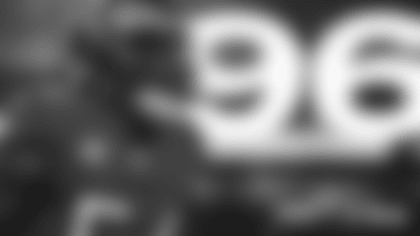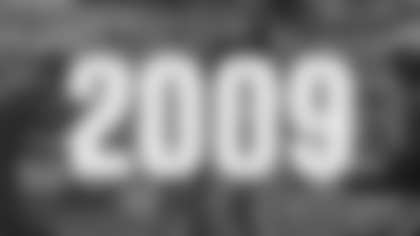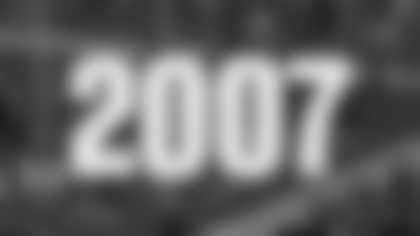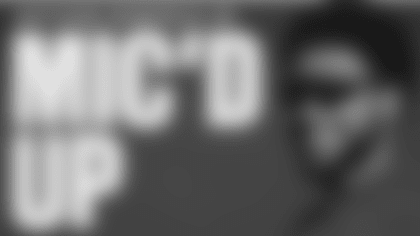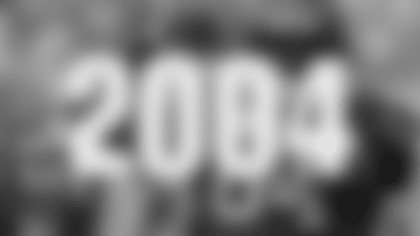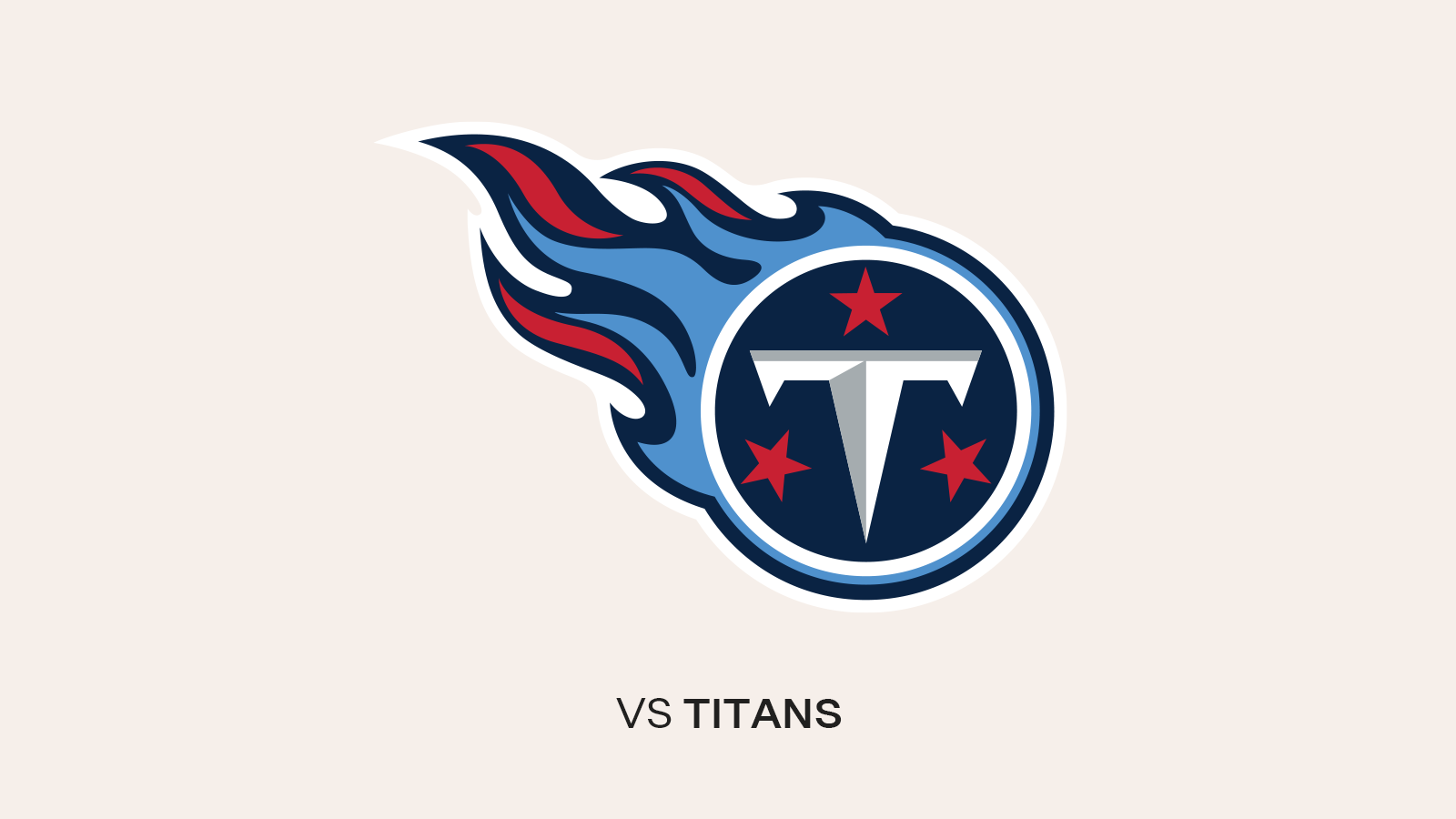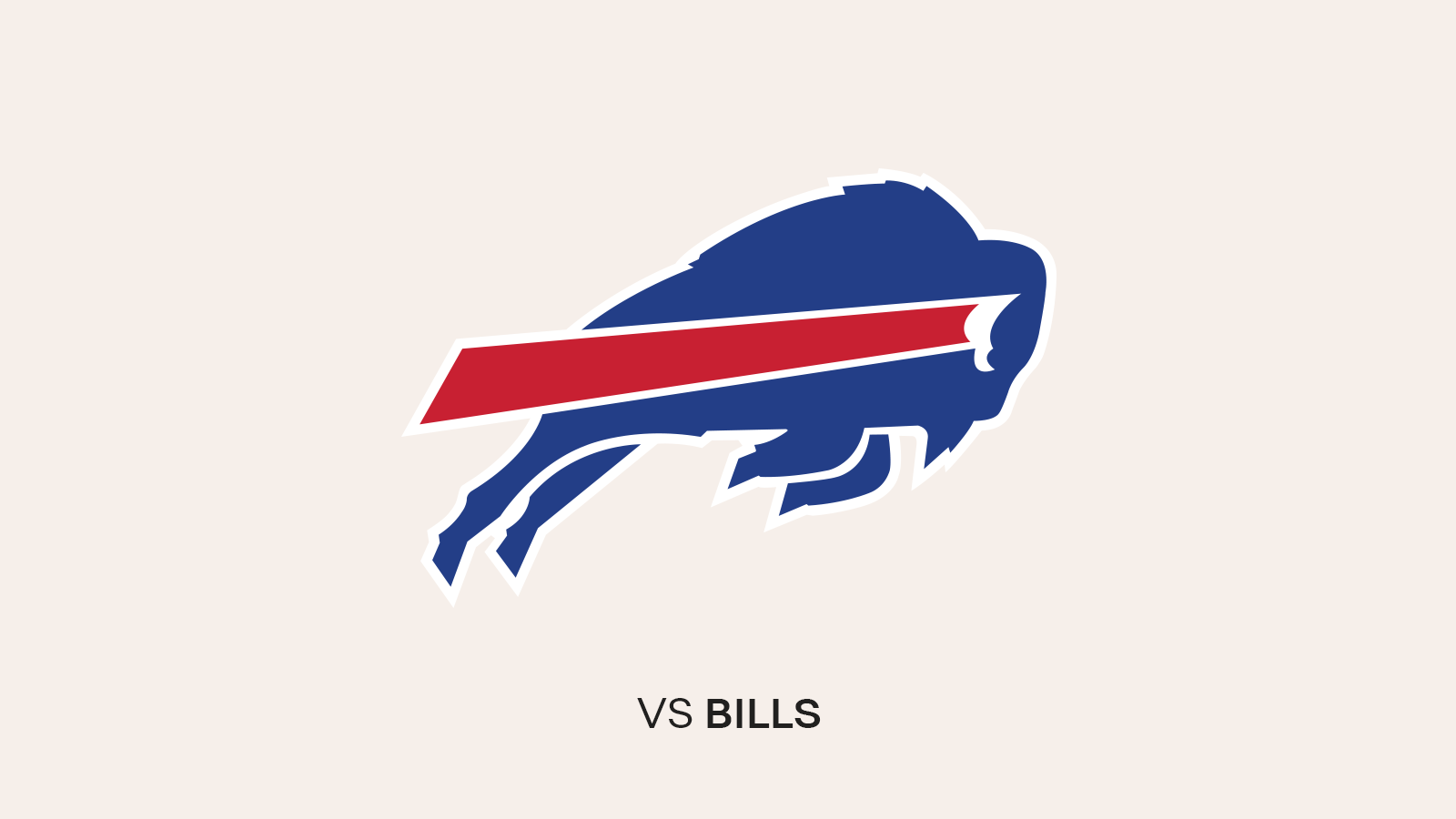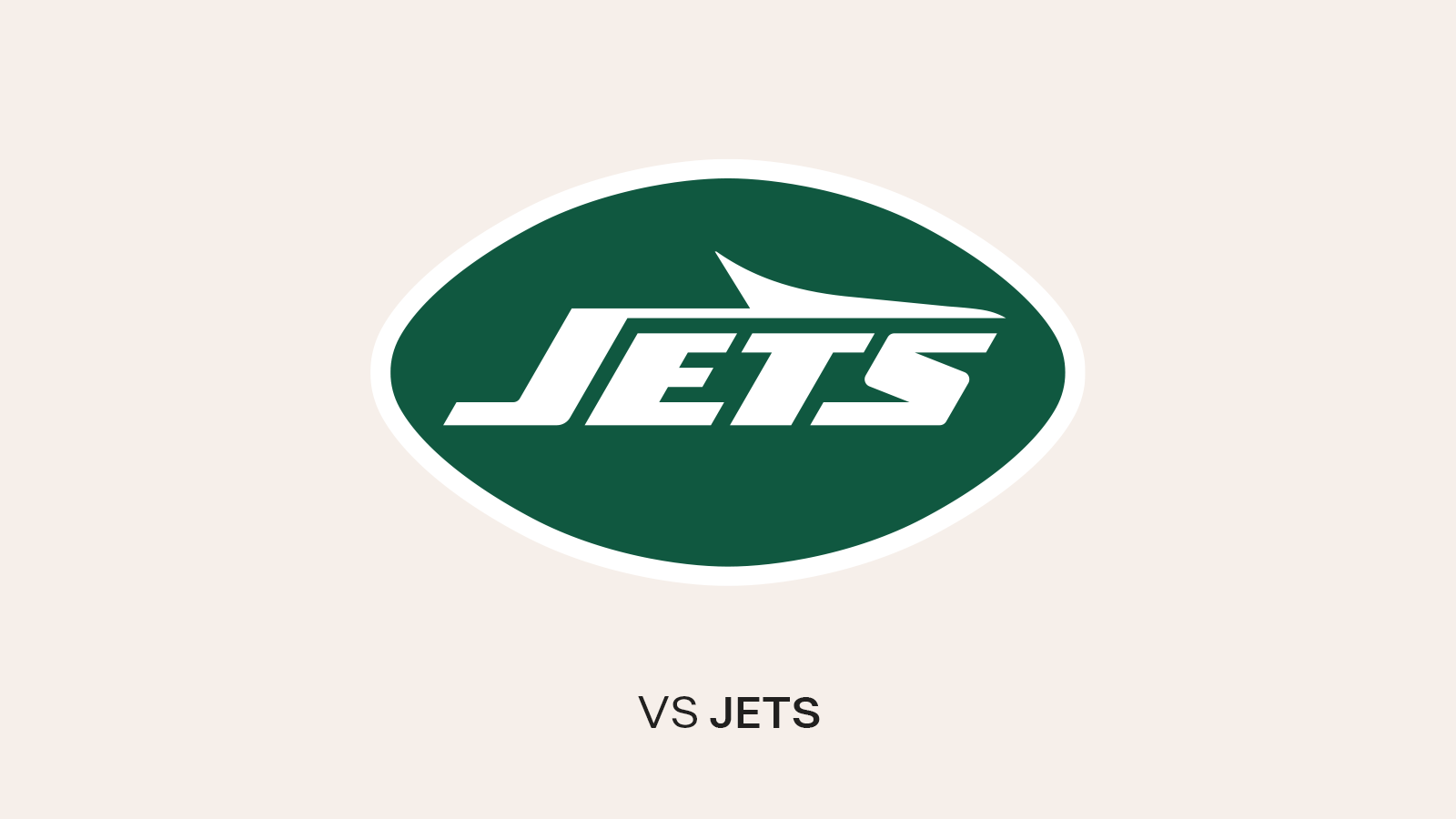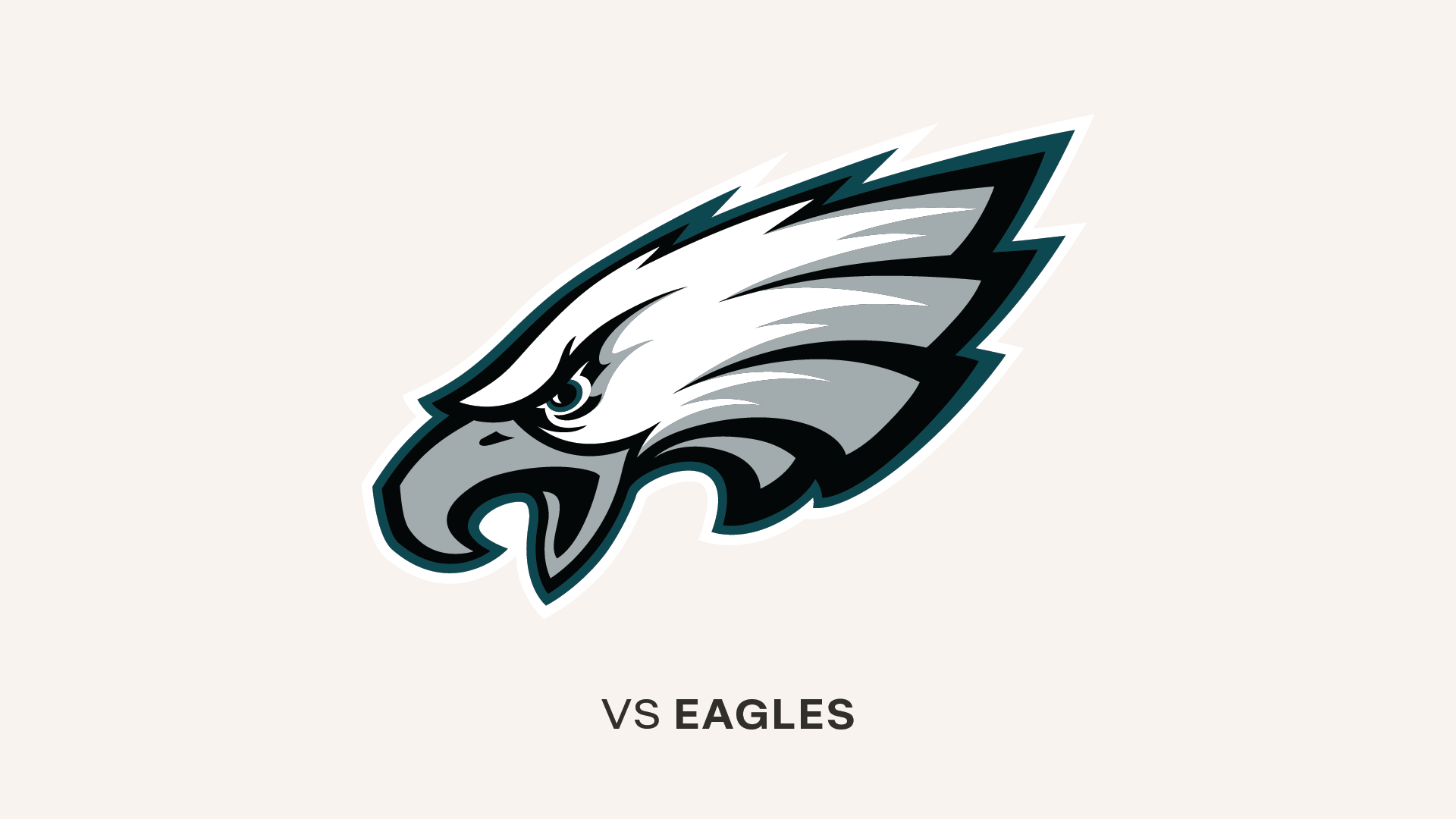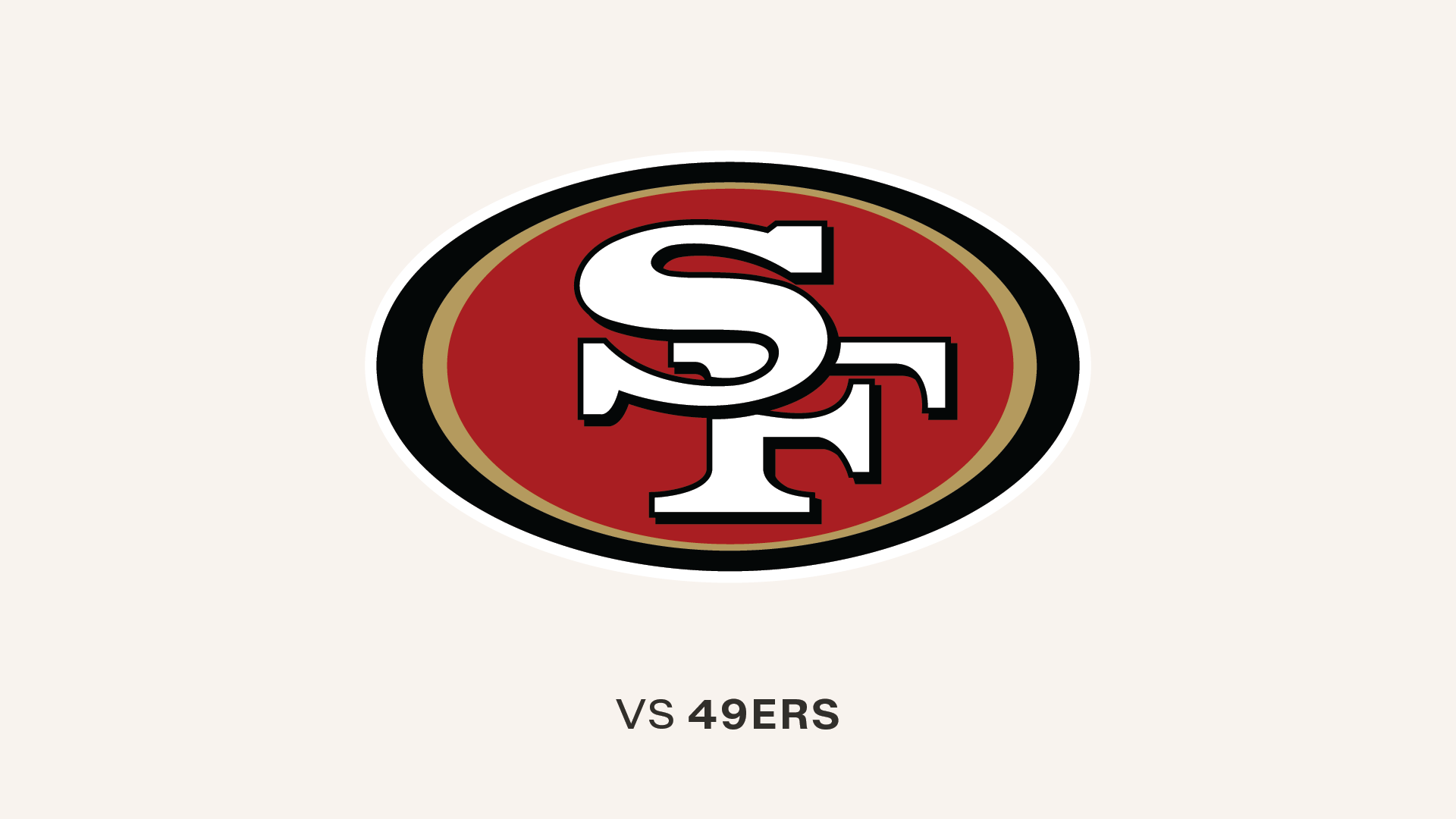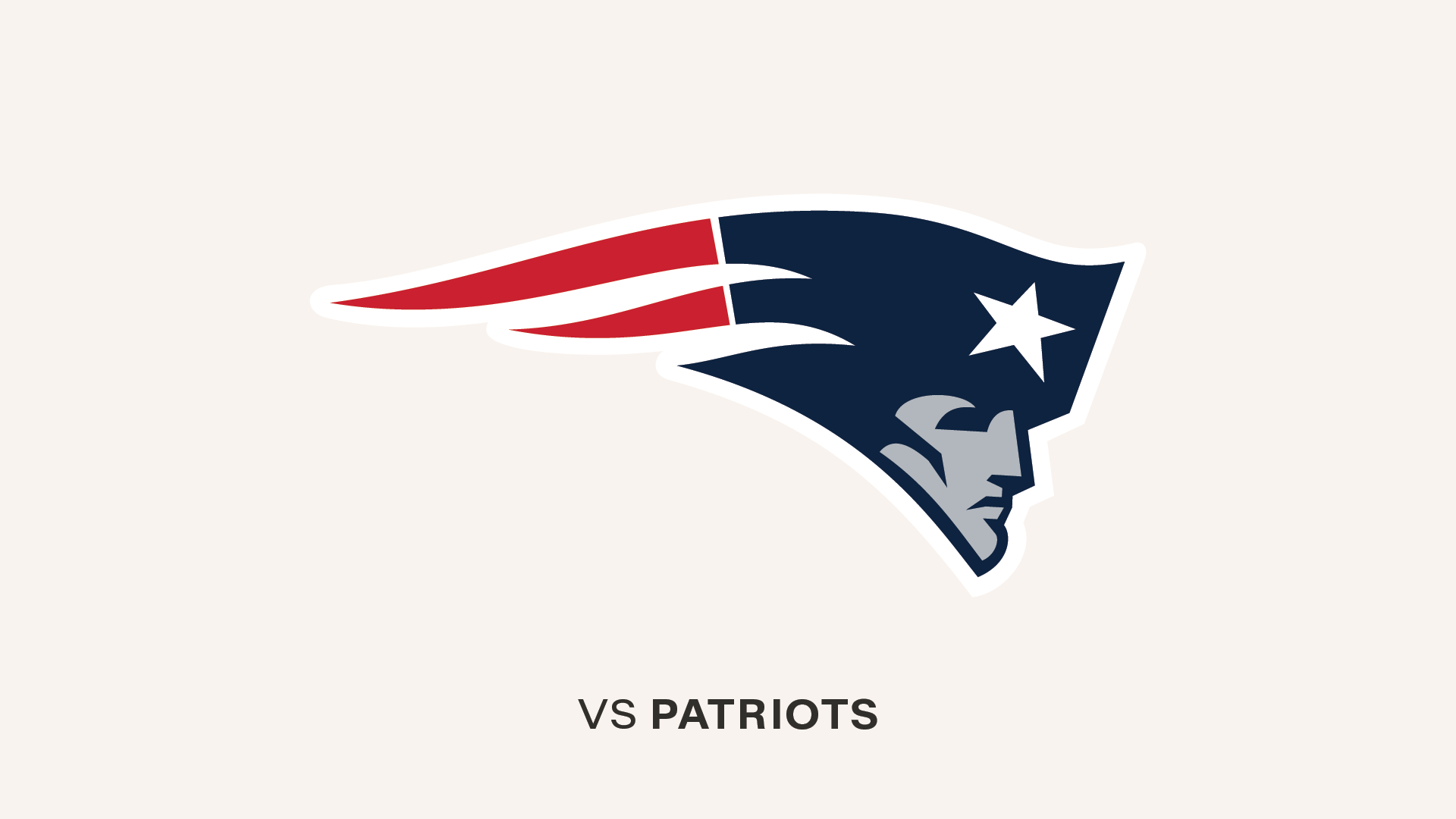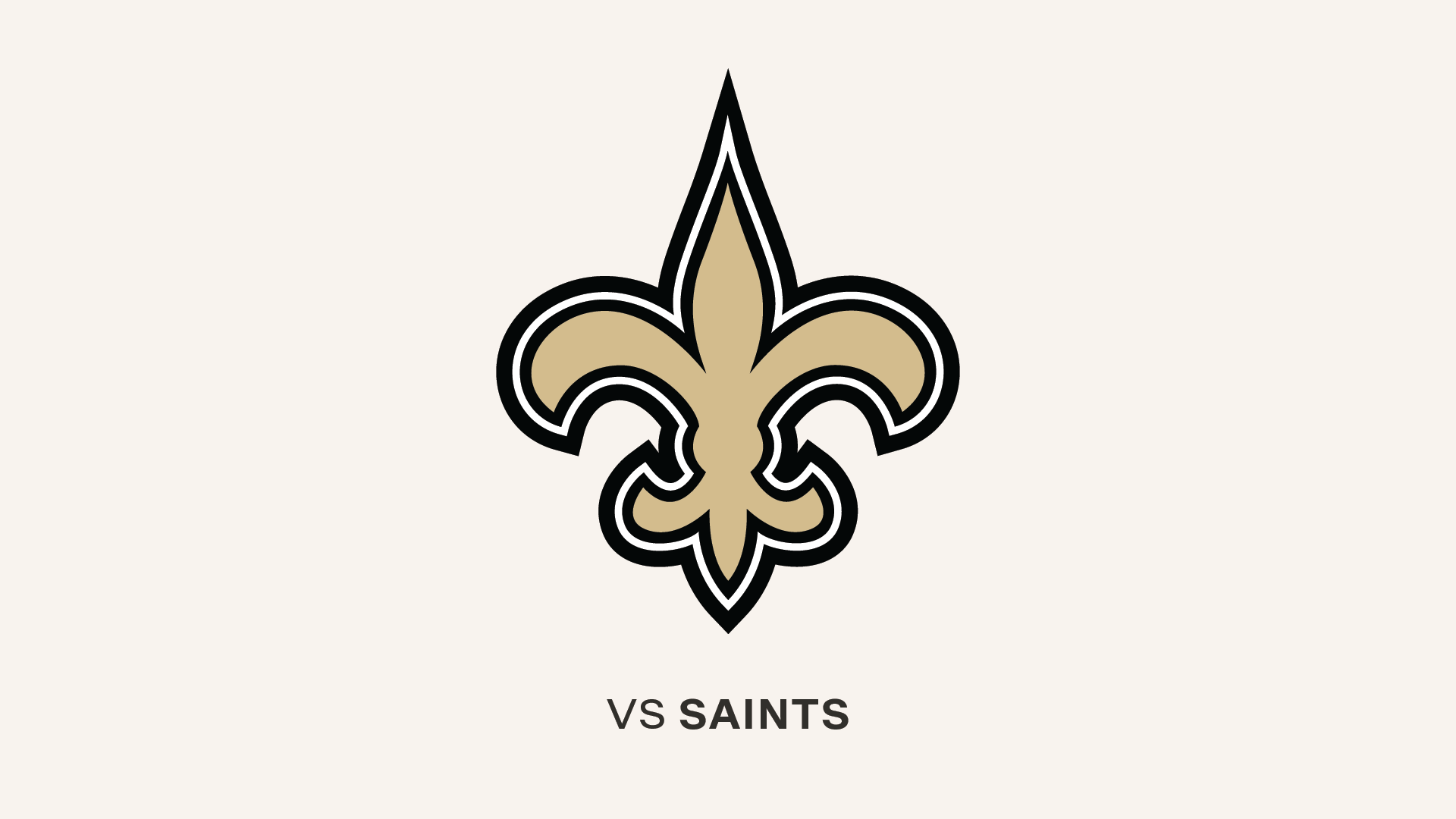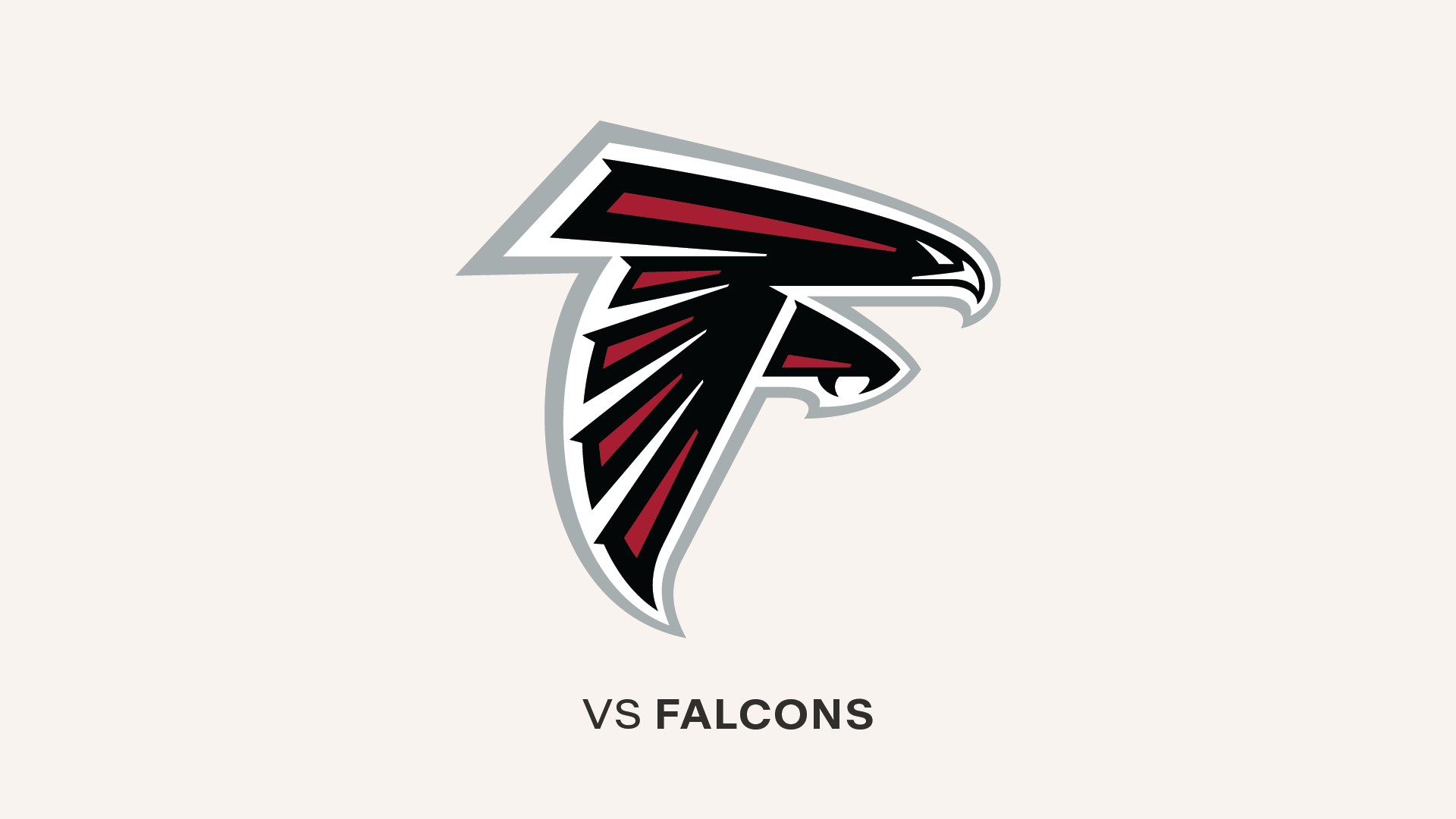*
A ranking of all 35 first round draft picks in the history of the Tampa Bay Buccaneers.

Of course, we all know what an incredible athlete Jackson was and he ended up with a thrilling if far-too-brief career with the Raiders. But when a team uses the first-overall pick on a man who never plays a single down for that franchise, that is truly the ultimate draft disaster.
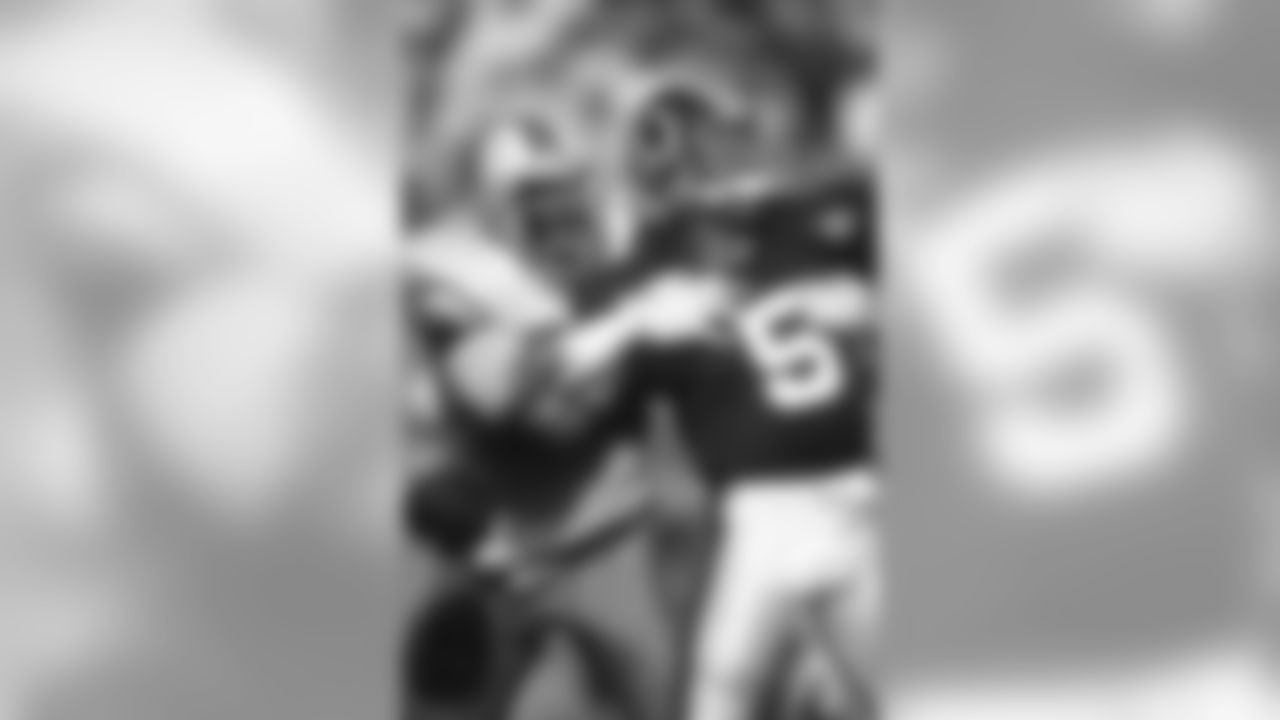
You can quibble with the order of these first three picks if you like, but all were top-seven picks who did little to justify that distinction.
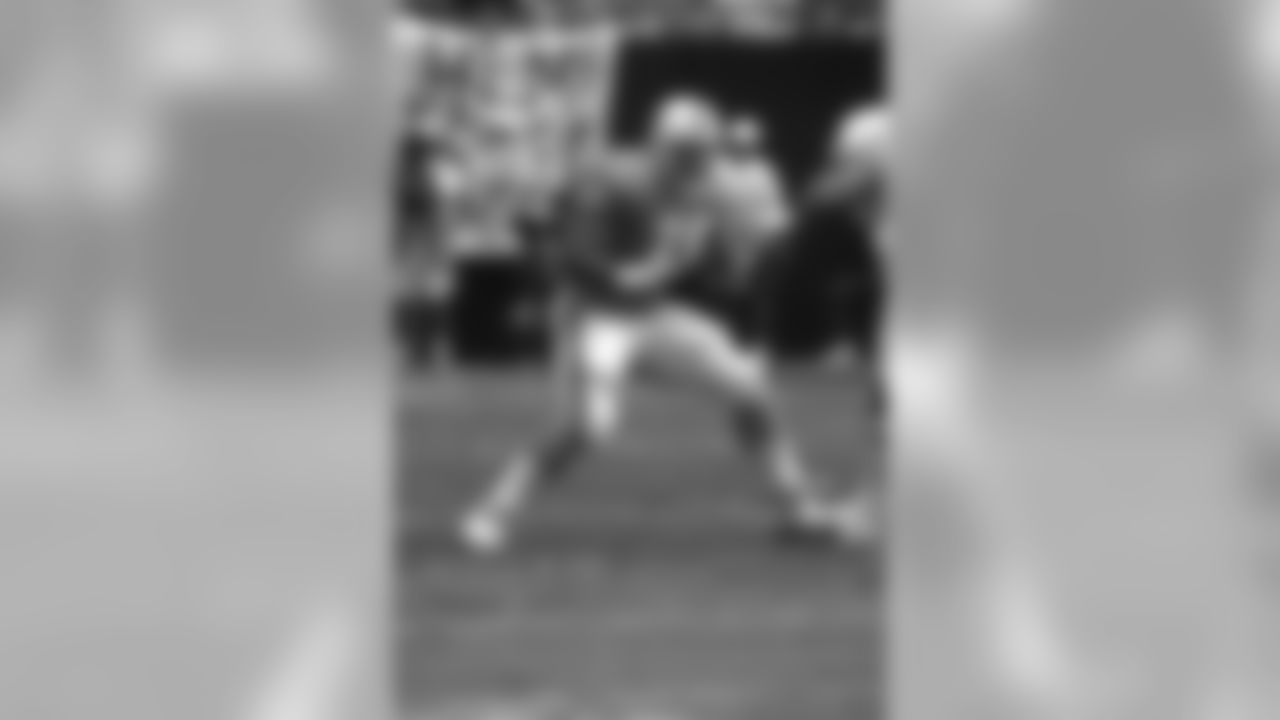
A nice man who may not have had the mean streak to excel in the NFL. Whether or not that's true, McRae was picked at #7 overall to be the bookend to Gruber and never came close to the same level of play. The Bucs tried him at several different spots on the line, inside and outside, but he would make just 38 starts.
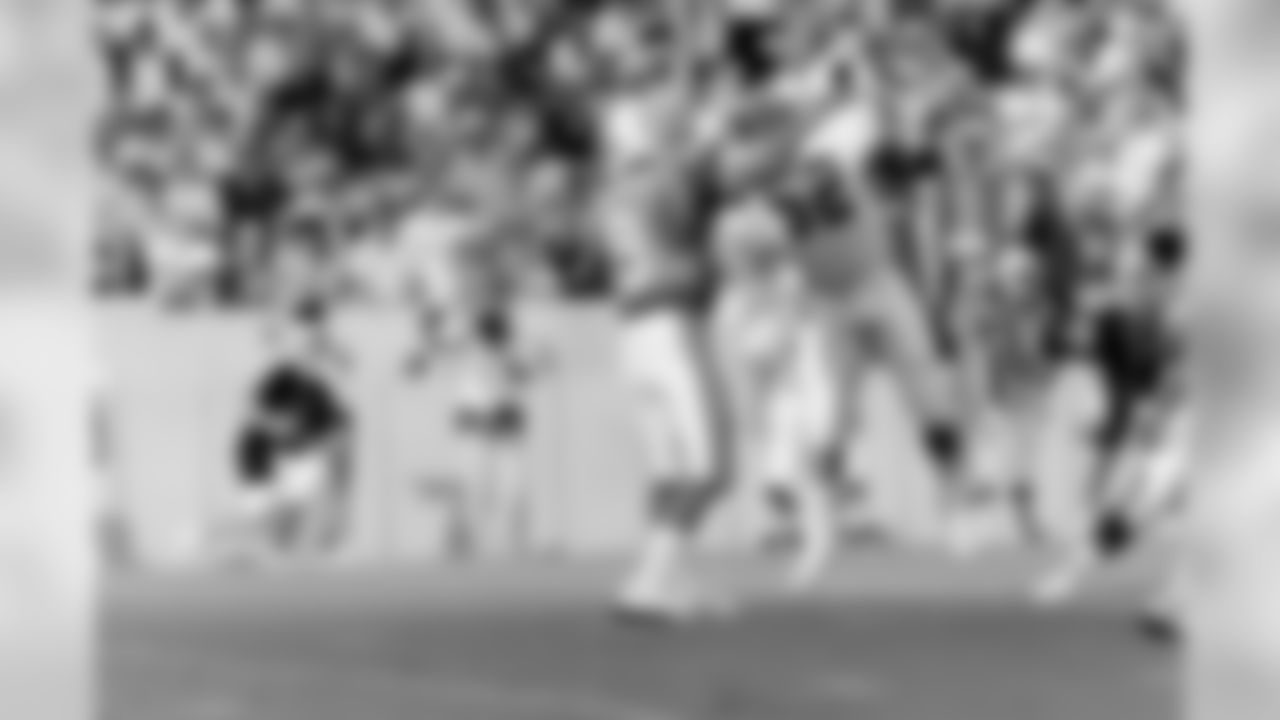
After the inspired Paul Gruber pick and the okay Broderick Thomas selection, things turned ugly for the franchise over the next half-decade of drafts. It started in '89 with the selection of Alabama's McCants, the linebacker that went one spot ahead of Junior Seau. (I know, I said I wasn't going to go there, but still.) The Bucs liked his raw talents but he was the ultimate 'tweener, unable to make an impact at either linebacker or defensive end.
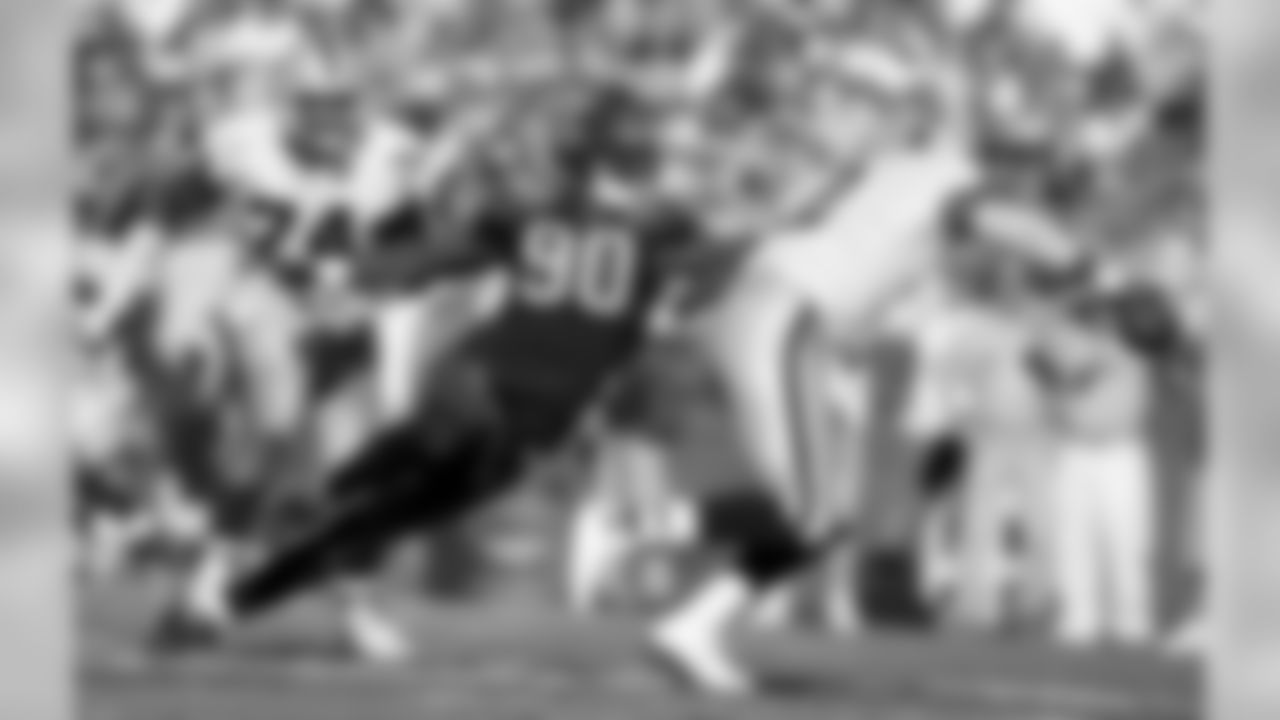
Another top-10 pick the Bucs traded away during his third season. The far greater tragedy was his sudden death from a heart ailment in January of 2010, after he had finished that third season in Chicago.
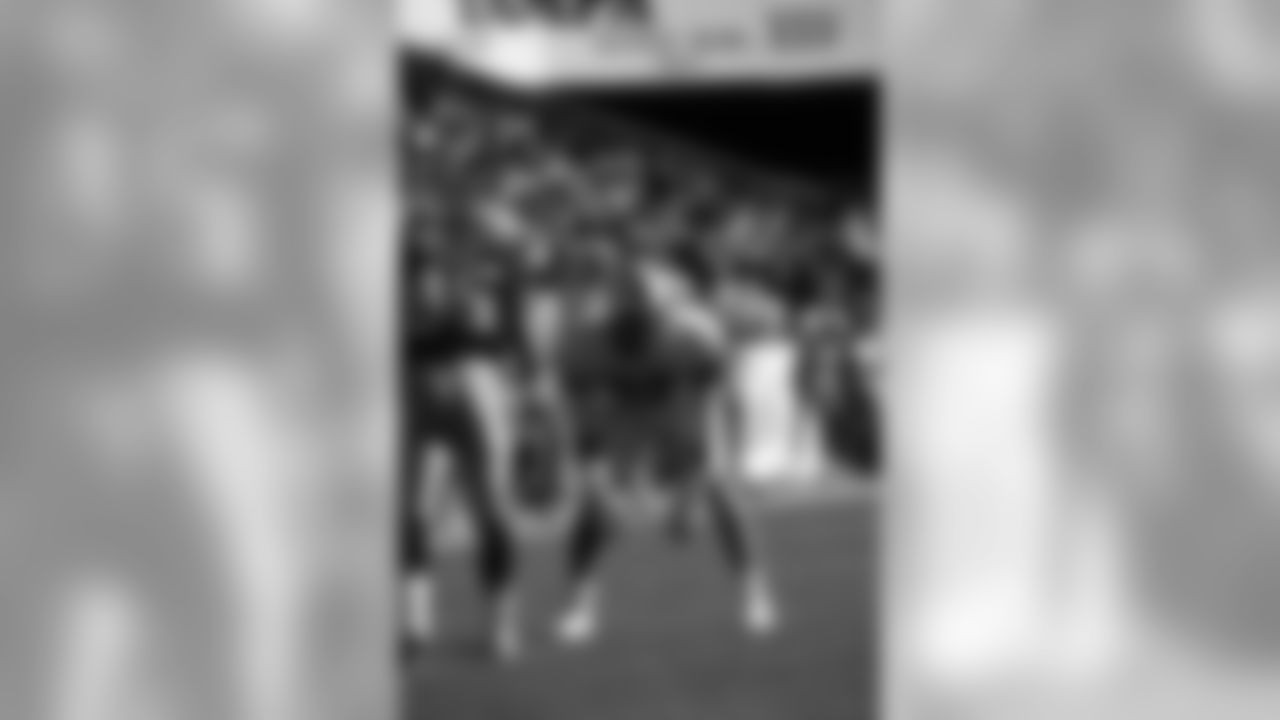
"Toast" is really not a nickname you want as an NFL cornerback.

After the 2010 season, Freeman's second, he appeared to be destined for a top-10 spot on this list. However, his 2011 campaign was a step back, and after a decent rebound in 2012 his career became derailed in 2013. The Bucs let him go four games into that season and he was not in the league in 2014.

Barron could still prove to be an above-average NFL player. But it won't be in Tampa. A first-round pick that is traded two-and-a-half years later cannot be considered a successful selection for the team.
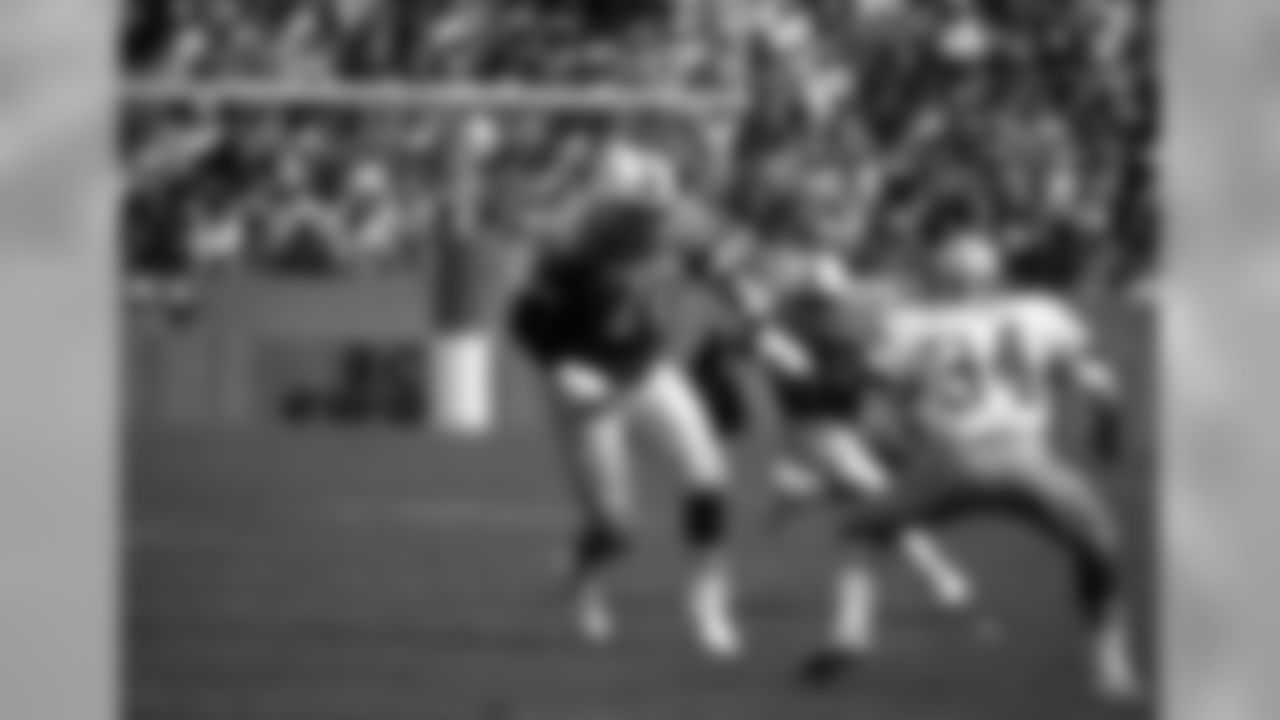
An average to below-average guard and four seasons of play are not what a team is looking for at pick #22.

This is probably not fair to Clayborn, the team's first-round pick in 2011. Two of his last three seasons have been wiped out almost completely by knee injuries, making it impossible for him to deliver on the promise of a 7.5-sack rookie campaign. There is still hope for the hard-working Clayborn, but he's a pending free agent and if his career does continue on somewhere else, it will be hard for him to move up this particular list.
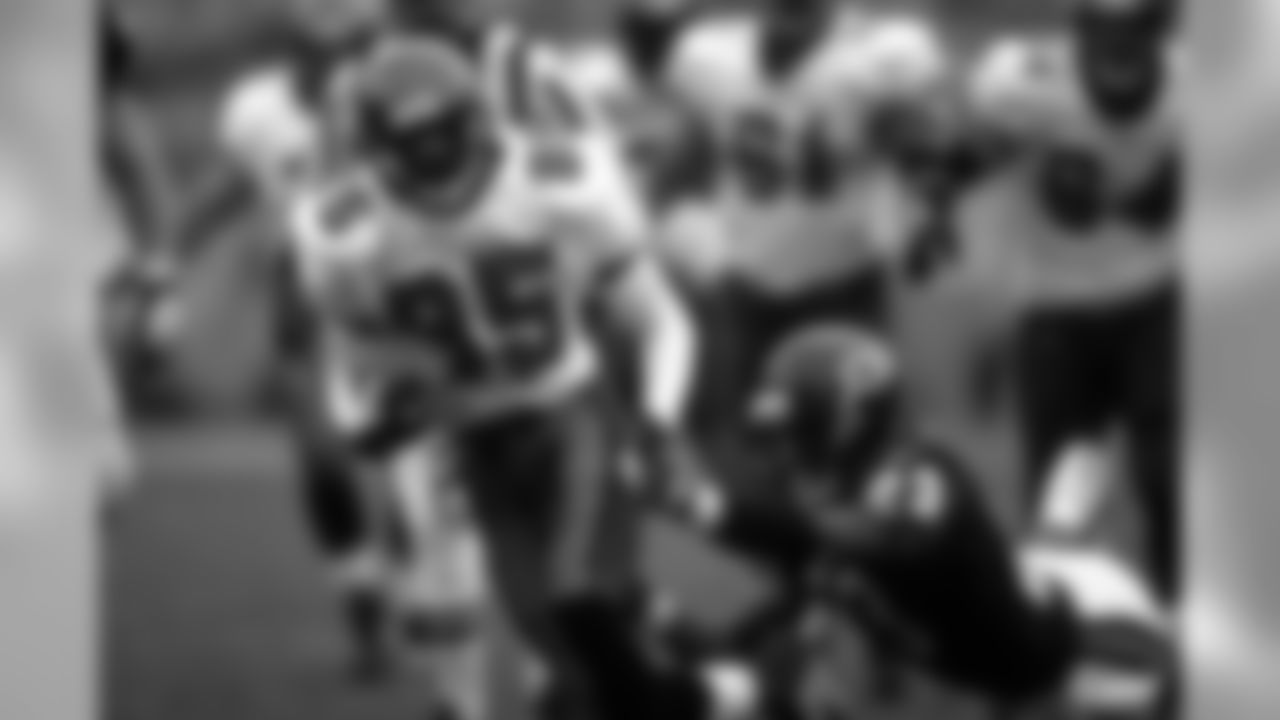
Anthony's relatively low career totals (144 catches for 1,846 yards and 16 TDs) may have been due in part to the Bucs' defense-plus-running game formula and conservative play-calling of the time. Still, he was a receiver drafted 16th overall, so it's likely the Bucs were expecting more. Played only five seasons and totaled 58 catches over the last three.

Tony Dungy sought help for the defensive front in his first draft as the Buccaneers' head coach, but he didn't get much overall impact out of the duo of Jones and Upshaw. While Jones had the peak years as a Buc that Upshaw never did, Upshaw had the upper hand in career longevity, continuing on for five more seasons with Oakland, Washington and the Giants.

Rotating QBs during his tenure surely didn't help, but we're just basing this on the numbers that were returned for the high pick.
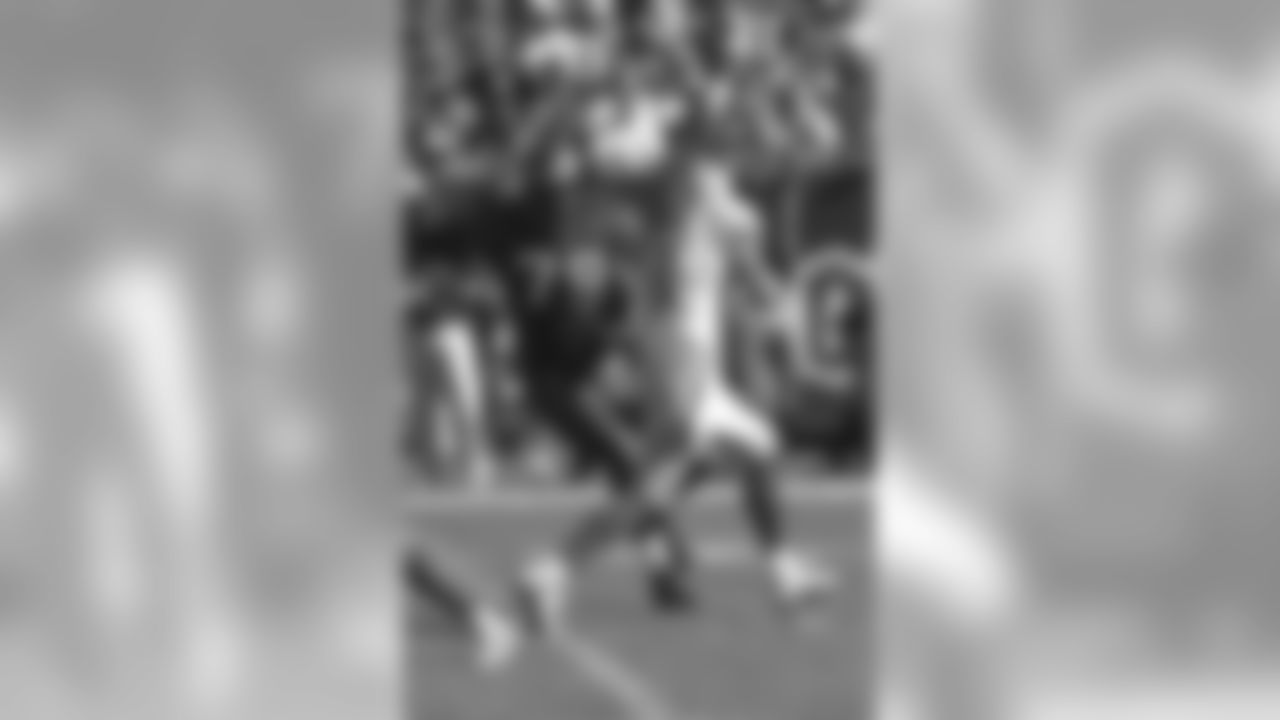
Jones would have been an unequivocal bust if he had stayed at defensive tackle. But, after several poor seasons inside, he moved to end and racked up 20 sacks from 1999-2000. That earned him a big new contract that proved to be a mistake, as he would play in just 15 more games and produced three more sacks.
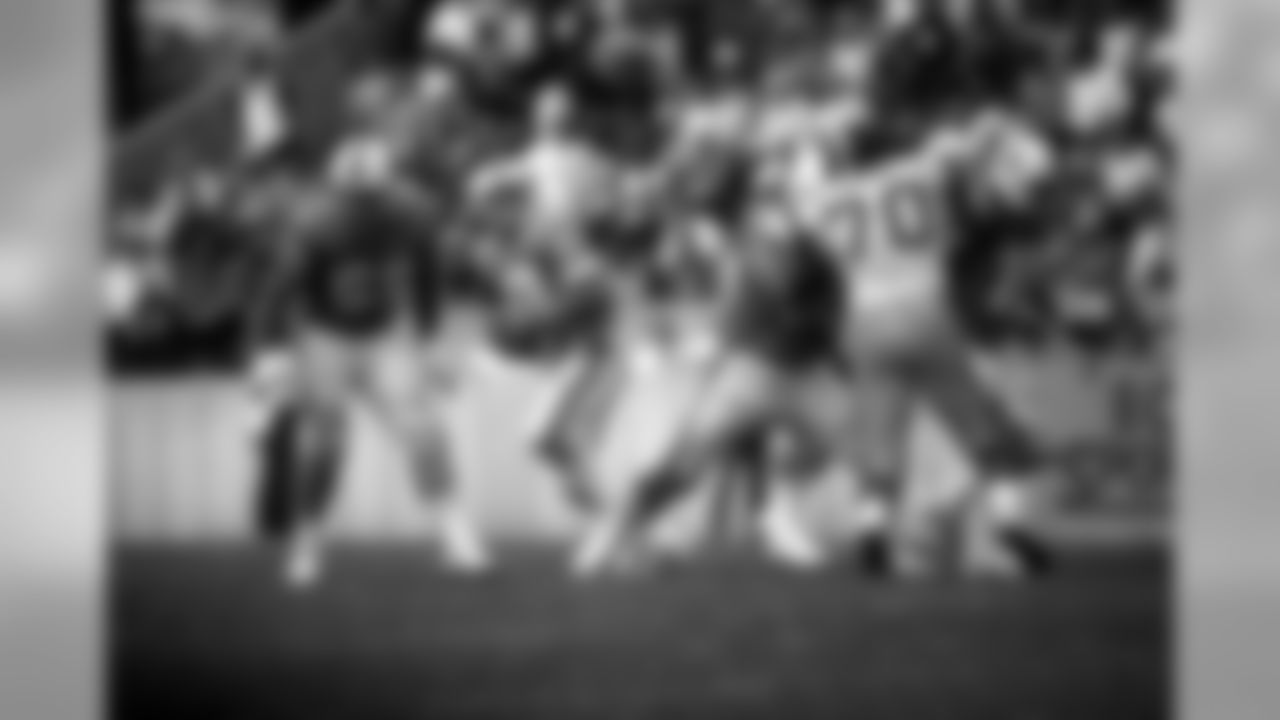
As the story goes, a problematic phone line in 1982 led to the Bucs' mistakenly taking Farrell in the first round, which then led to the disastrous trade of an '83 first-round pick to get a second-rounder in order to nab the intended target, Booker Reese. Farrell was actually a pretty effective guard for the Buccaneers, but he wasn't happy with the losing culture of that time and eventually demanded a trade. The low ranking of this pick is more of a reflection of how the whole thing was handled by the organization than of Farrell's talents.
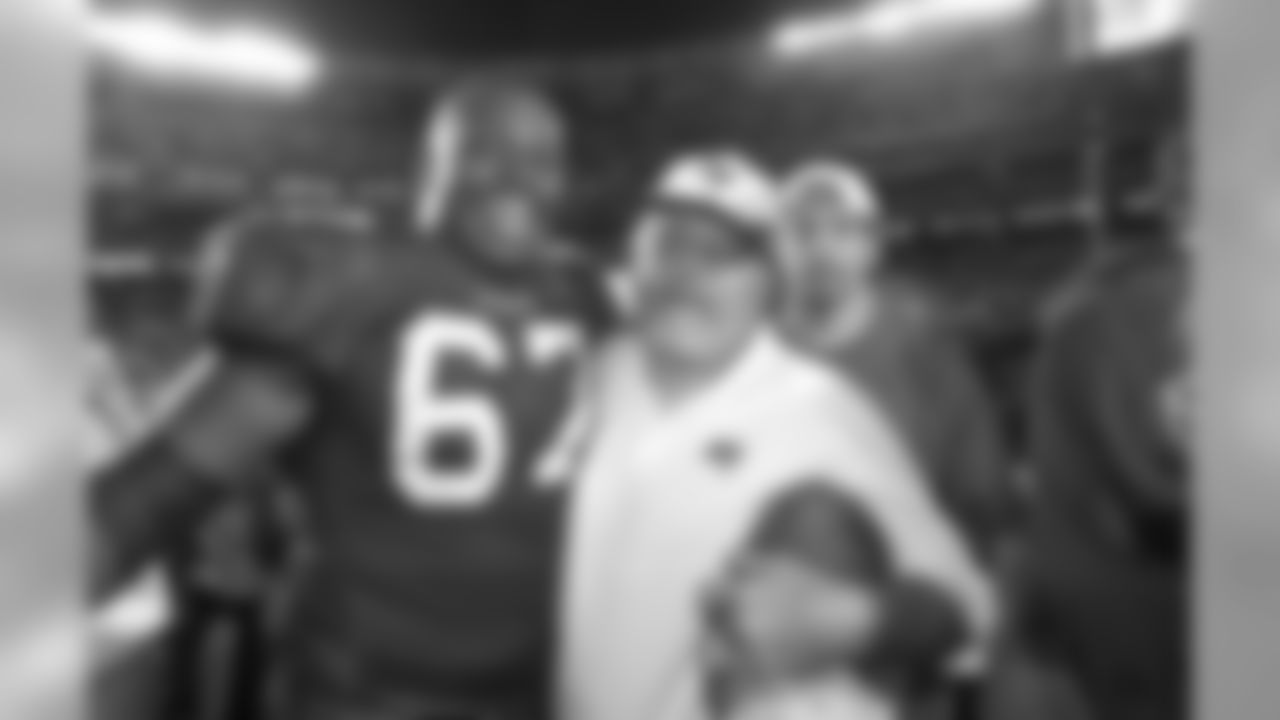
The Bucs traded up to land Walker in 2001, but he had a rough season at left tackle as a rookie. He moved to right tackle in 2002 and ended up as a starter on a Super Bowl-winning team. That and 73 career starts keeps him from getting the bust label, but his level of play rarely lived up to the expectations of a 14th-overall selection.
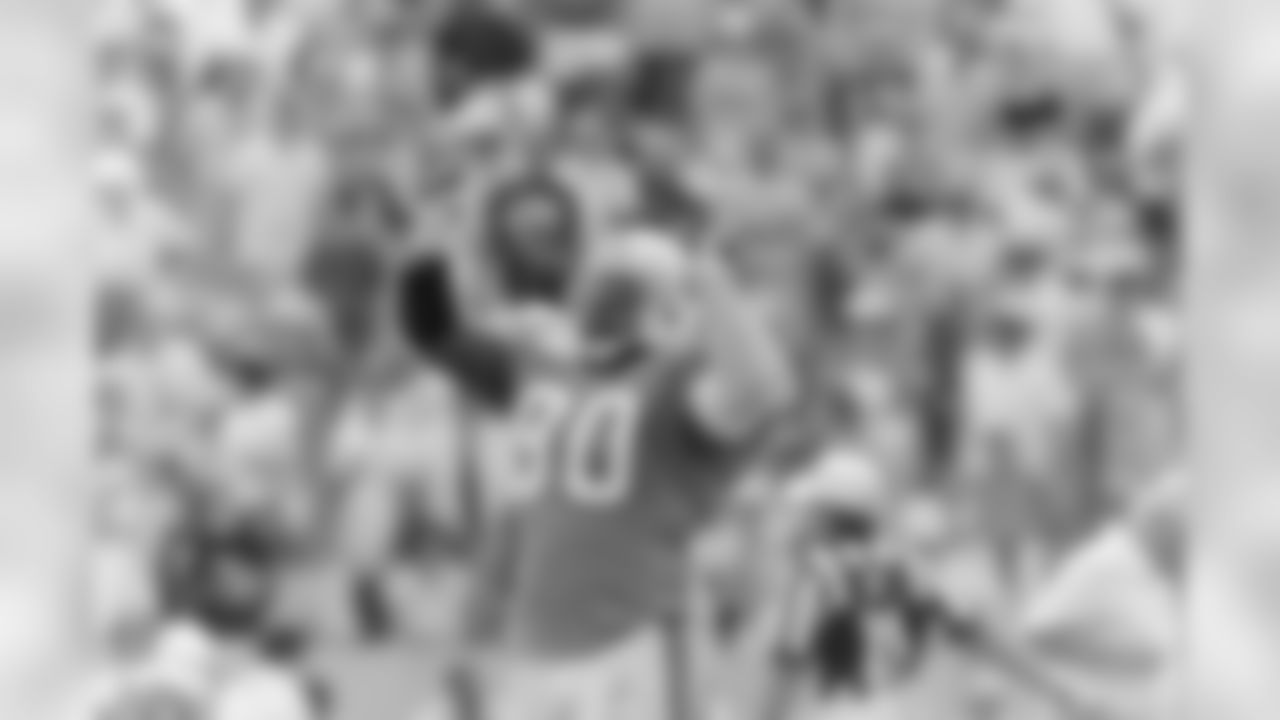
Holmes was a decent end who started for most of his four seasons in Tampa and produced 19 sacks in that span.
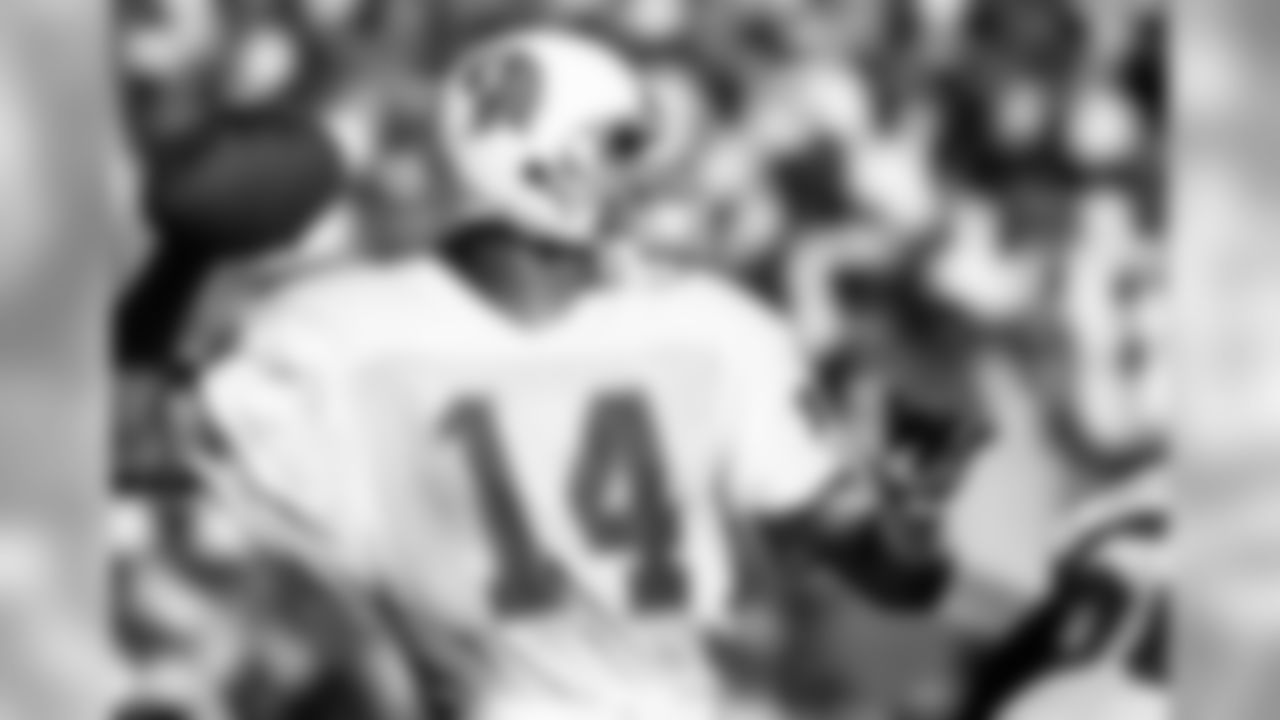
Listen, the story for these two (Dilfer and Testavarde) is the same. They both are very nice men who ended up with perfectly decent NFL careers. Dilfer, in fact, started for a Super Bowl-winning team in Baltimore while Testaverde played long enough and consistently enough to climb to ninth on the NFL's all-time passing-yardage chart. But both threw more interceptions than touchdowns as a Buccaneer and both left town with a passer rating south of 70. Really, the point is that they were #6 and #1 overall picks, respectively, and if you take a QB there and don't end up with a franchise QB, the pick isn't a total success. Trent gets the nod over Vinny because he made a Pro Bowl and the playoffs as a Buccaneer.

Listen, the story for these two (Dilfer and Testavarde) is the same. They both are very nice men who ended up with perfectly decent NFL careers. Dilfer, in fact, started for a Super Bowl-winning team in Baltimore while Testaverde played long enough and consistently enough to climb to ninth on the NFL's all-time passing-yardage chart. But both threw more interceptions than touchdowns as a Buccaneer and both left town with a passer rating south of 70. Really, the point is that they were #6 and #1 overall picks, respectively, and if you take a QB there and don't end up with a franchise QB, the pick isn't a total success. Trent gets the nod over Vinny because he made a Pro Bowl and the playoffs as a Buccaneer.
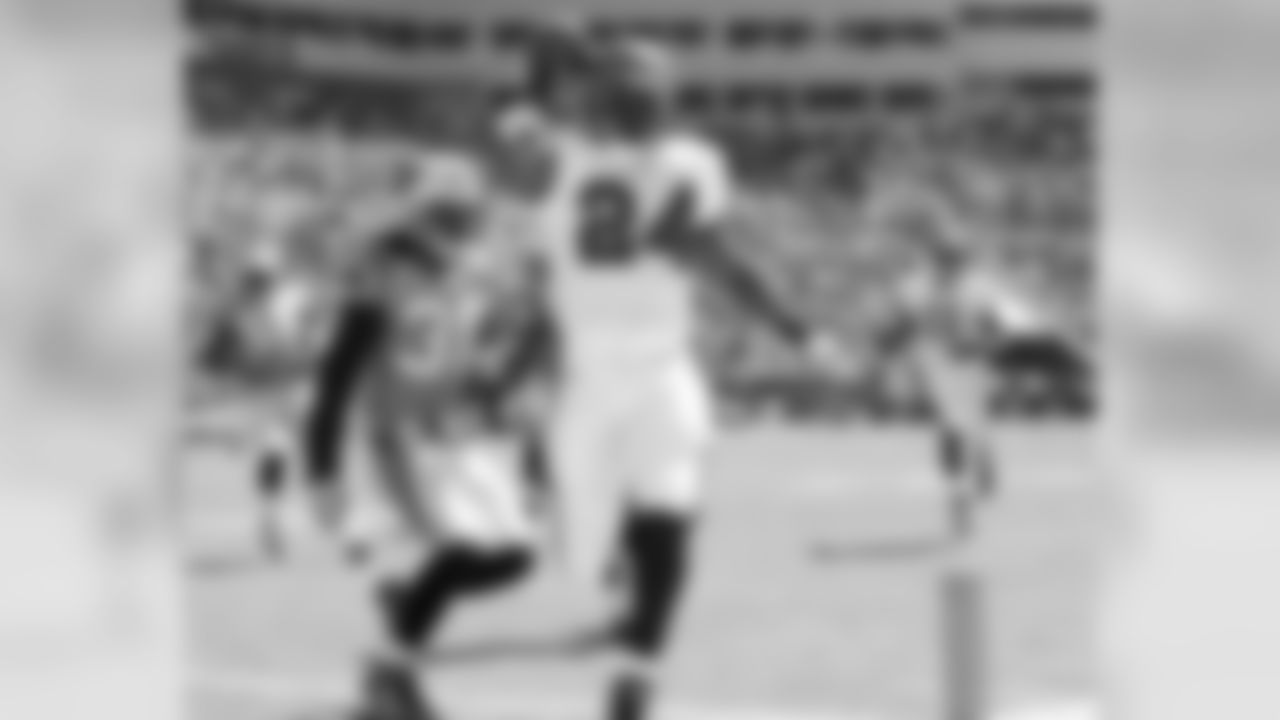
Williams was a good running back and a great teammate who deserved better luck. Knee injuries kept him from ever matching his rookie campaign, though he did have a pretty good comeback season in 2009. Williams would probably be bumped up ahead of the next guy in the long run if he doesn't have a similar rebound.
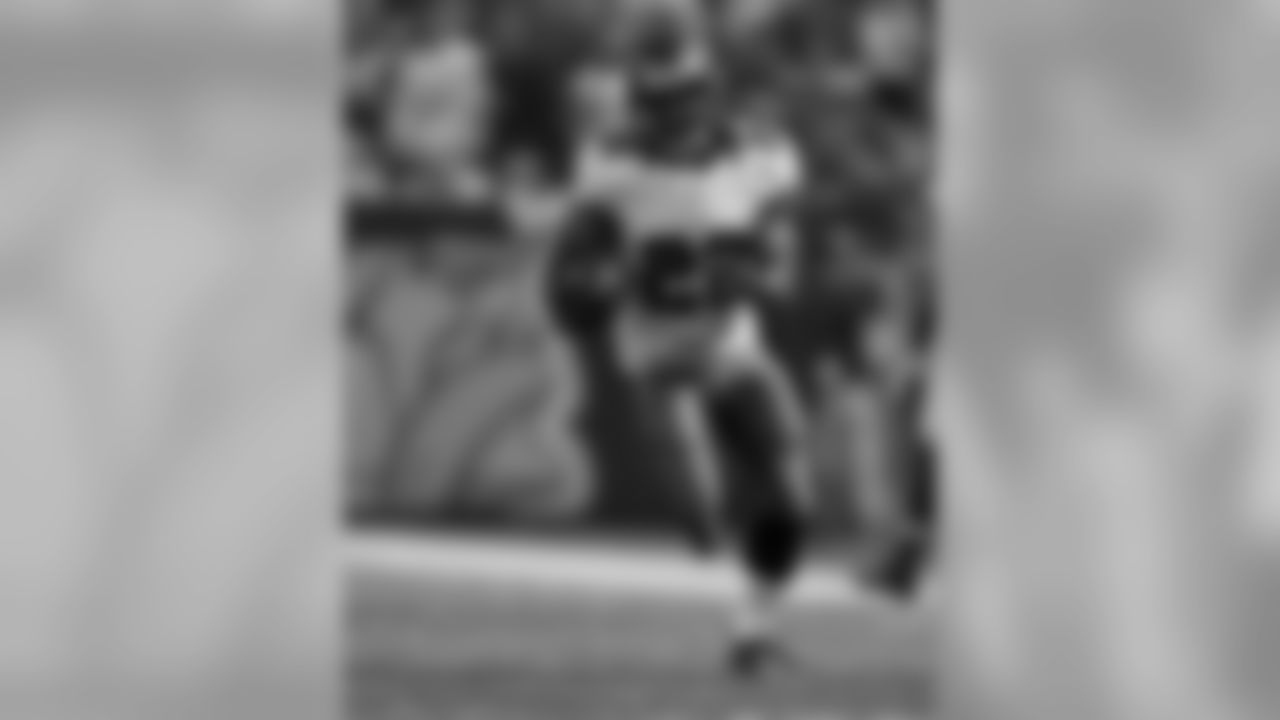
You could lump this pick and the last one together, but Martin goes ahead of Williams because he still has time to add on to what he has done. Like Williams, Martin had an outstanding rookie season but has since struggled with injuries and not come close to matching that production. Hopefully, he gets a chance to move up this list.
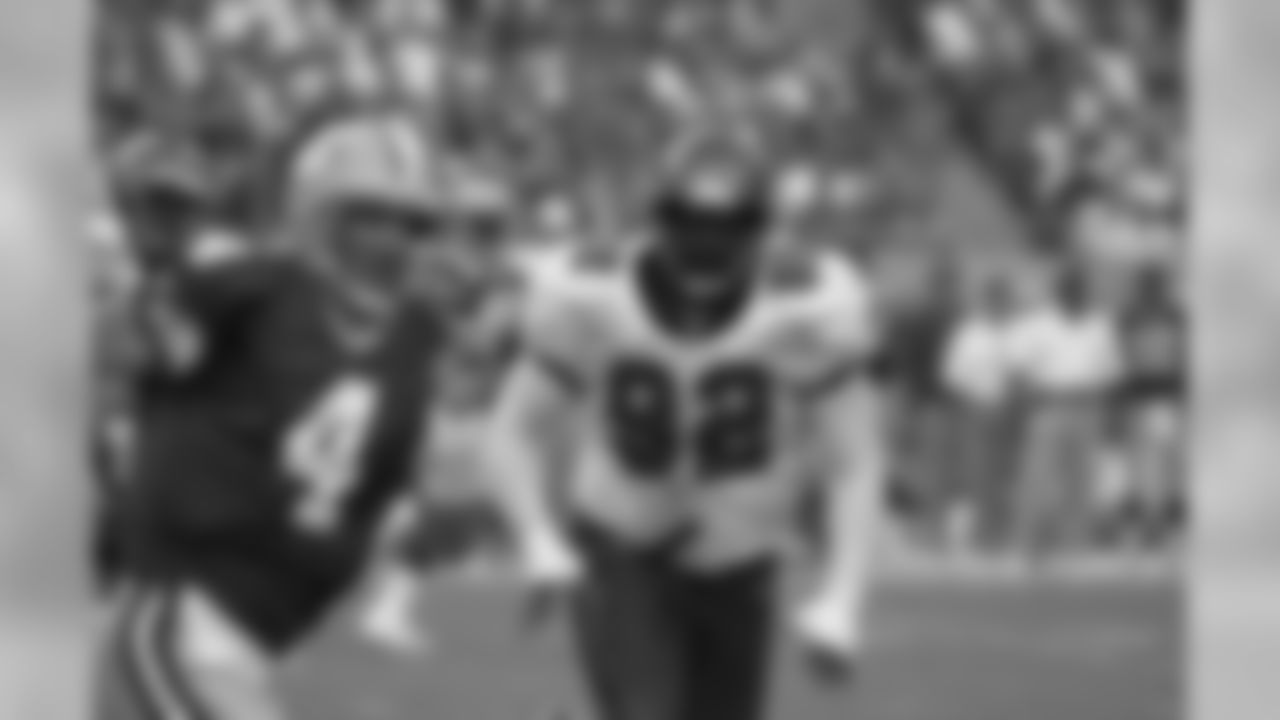
McFarland was a good defensive tackle who played eight seasons in Tampa and started 84 games. There were weighty expectations on him when he was drafted, especially the notion that he was the team's eventual replacement for Warren Sapp, and he didn't live up to those expectations, but he wasn't a bust.
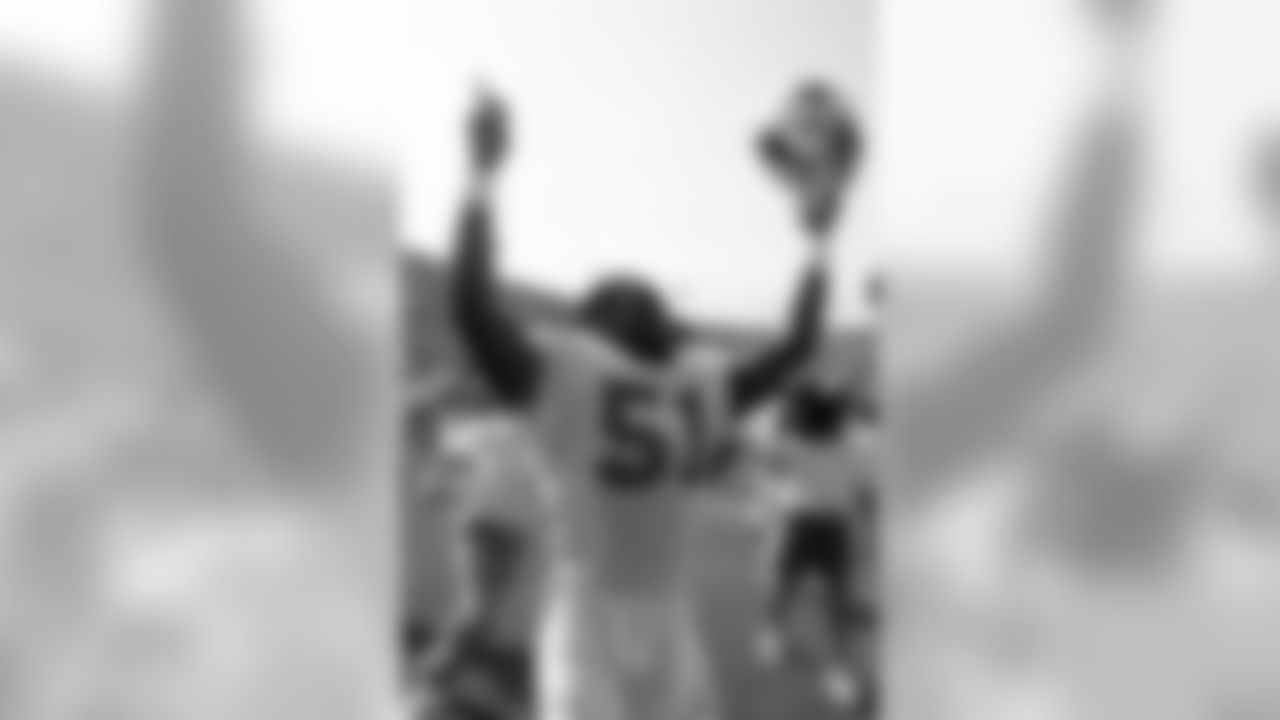
Thomas tends to get lumped in with all the team's disastrous picks around the turn of the 90s, but he really wasn't a bust. He played five seasons for the Bucs, started 55 games and is eighth on the franchise's all-time sack list. His peak was too brief and he clashed with coaches, but he wasn't another Eric Curry or Keith McCants.

Another Buccaneer tenure that ended in an unsatisfactory manner. Off-field issues kept him from being a Buccaneer long-term, but he gave the team five undeniably productive seasons and is still considered among the league's best at his position.
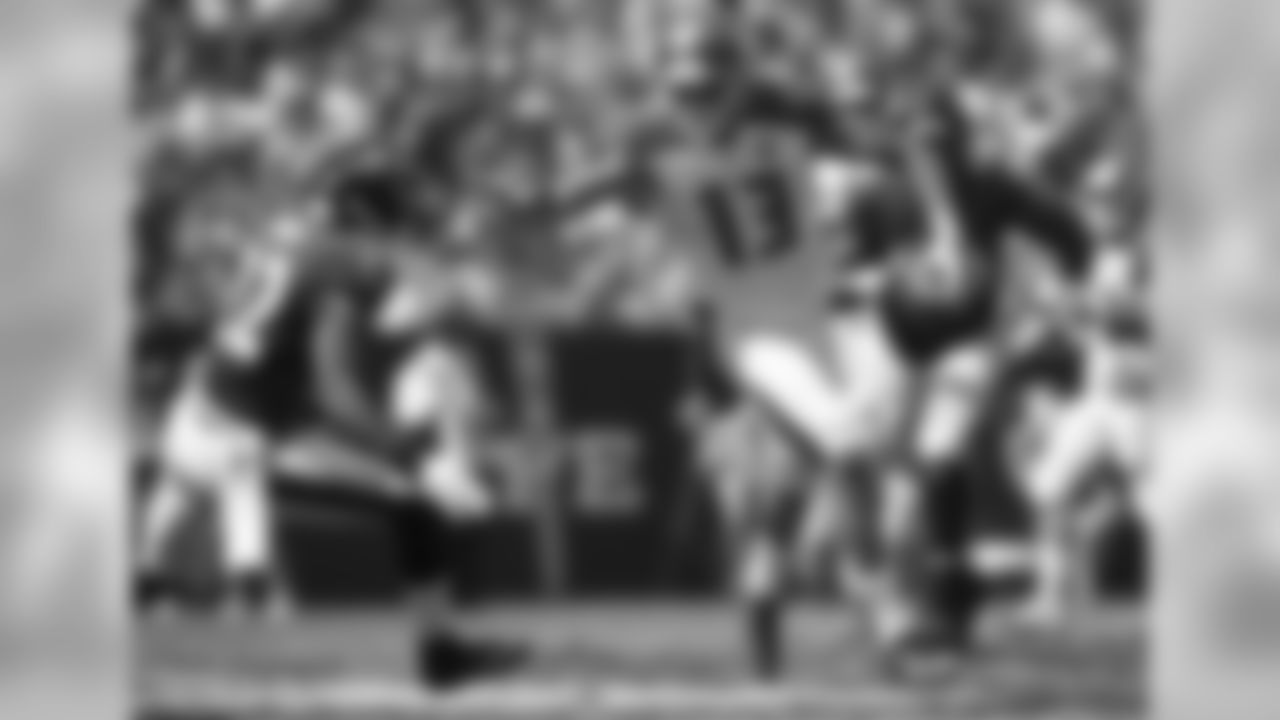
We really can't go any higher than this after just one season. Still, the future looks very, very bright for this pick.
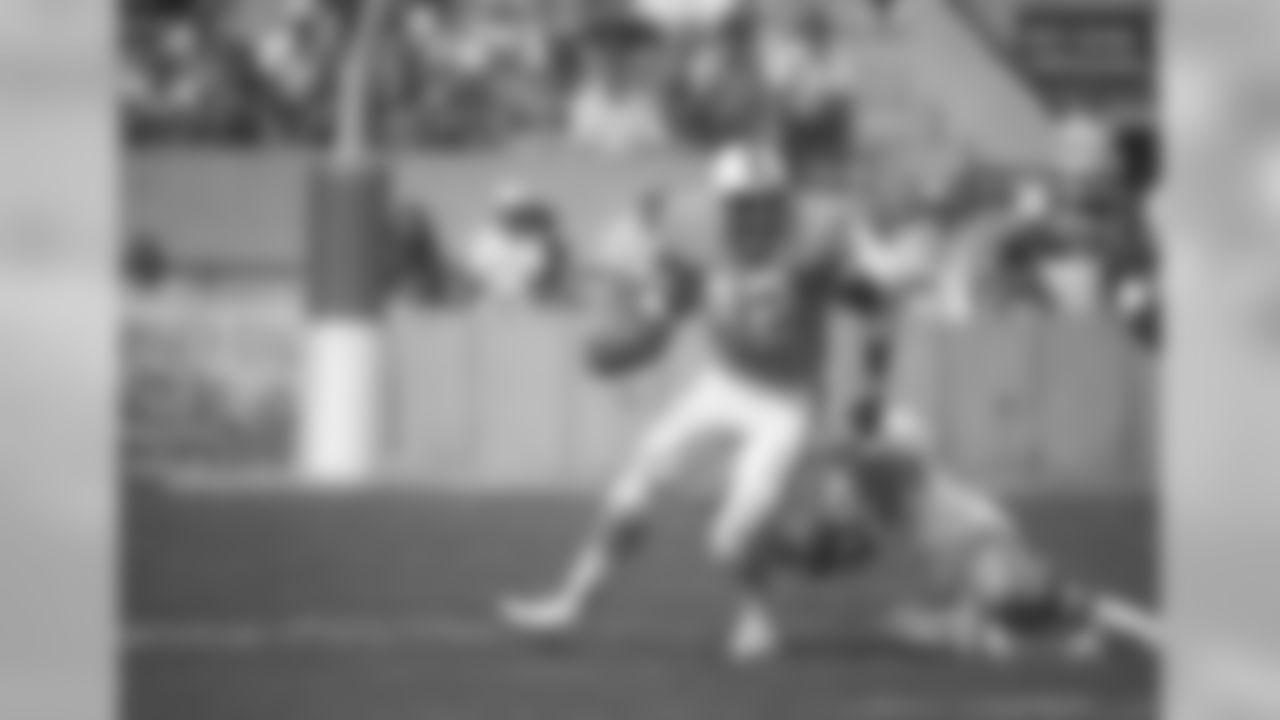
His career was cut short by the illness that took his life way too soon, but he really was the workhorse back the Bucs needed when they were rising from the cellar in the '70s. Again, we're not taking into account that the Bucs took Bell over Tony Dorsett.
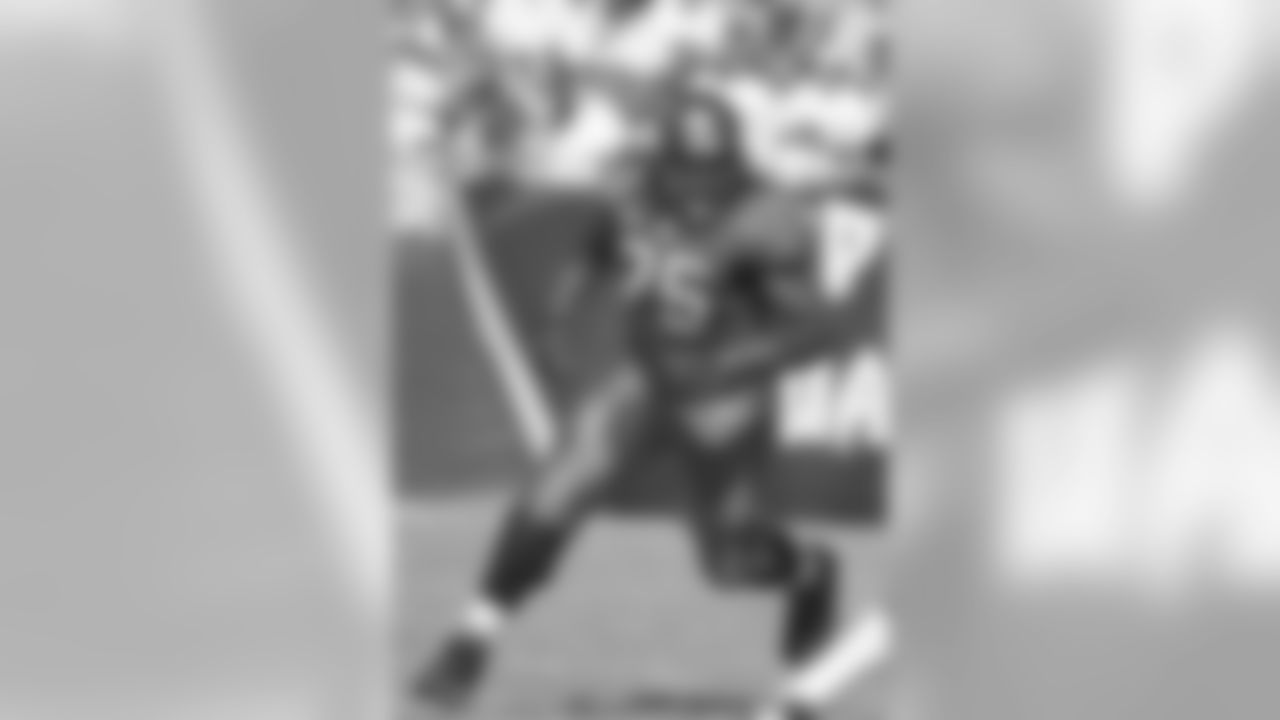
The pick nobody saw coming in 2006, one that was considered a "reach" at the time since Joseph hadn't shown up in any of the mock drafts. But he was the Bucs' target all along and he eventually went to multiple Pro Bowls
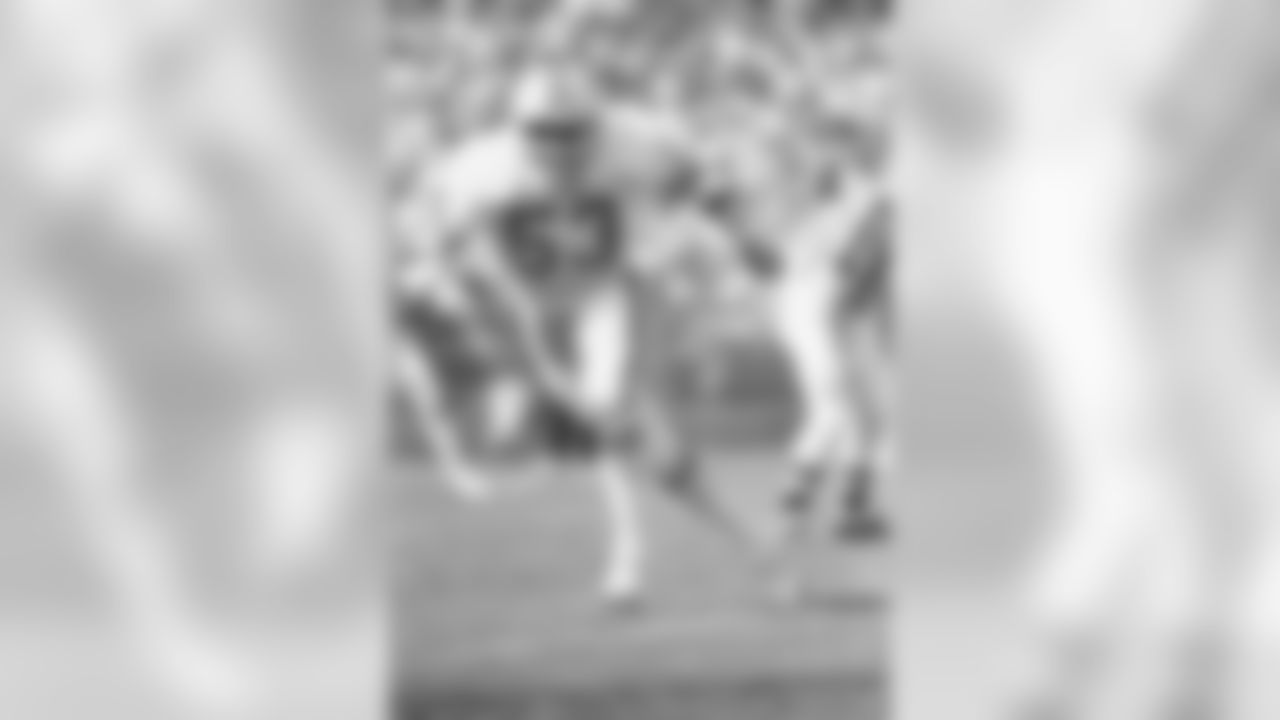
Green really was a standout player, fantastic in college and an immediate impact defender in the pros. It's too bad more than half of his career was spent with the Dolphins.

The first quarterback ever taken by the Bucs in the first round (that is, the first attempt to find a "franchise QB") and the man at the helm of the offense for the team's first three playoff berths. Later won a Super Bowl with Washington.
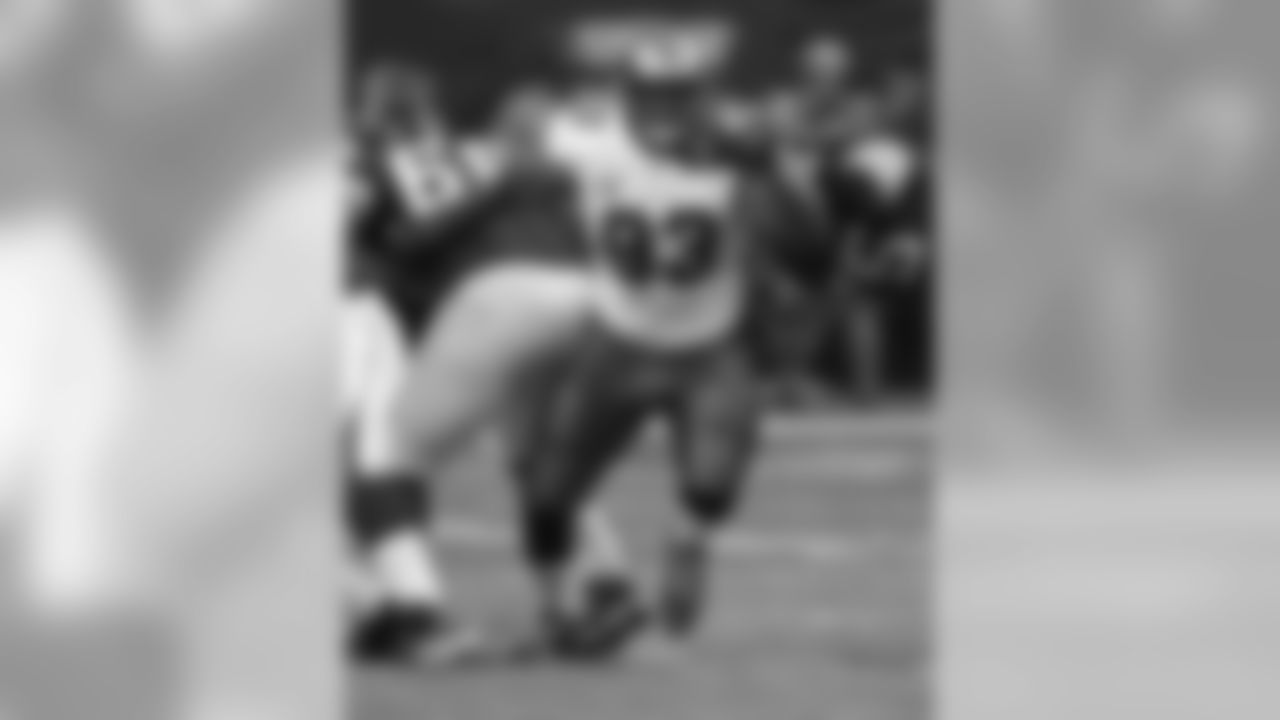
Could rise quickly up this list if he continues to pile up Pro Bowl invites and All-Pro selections.
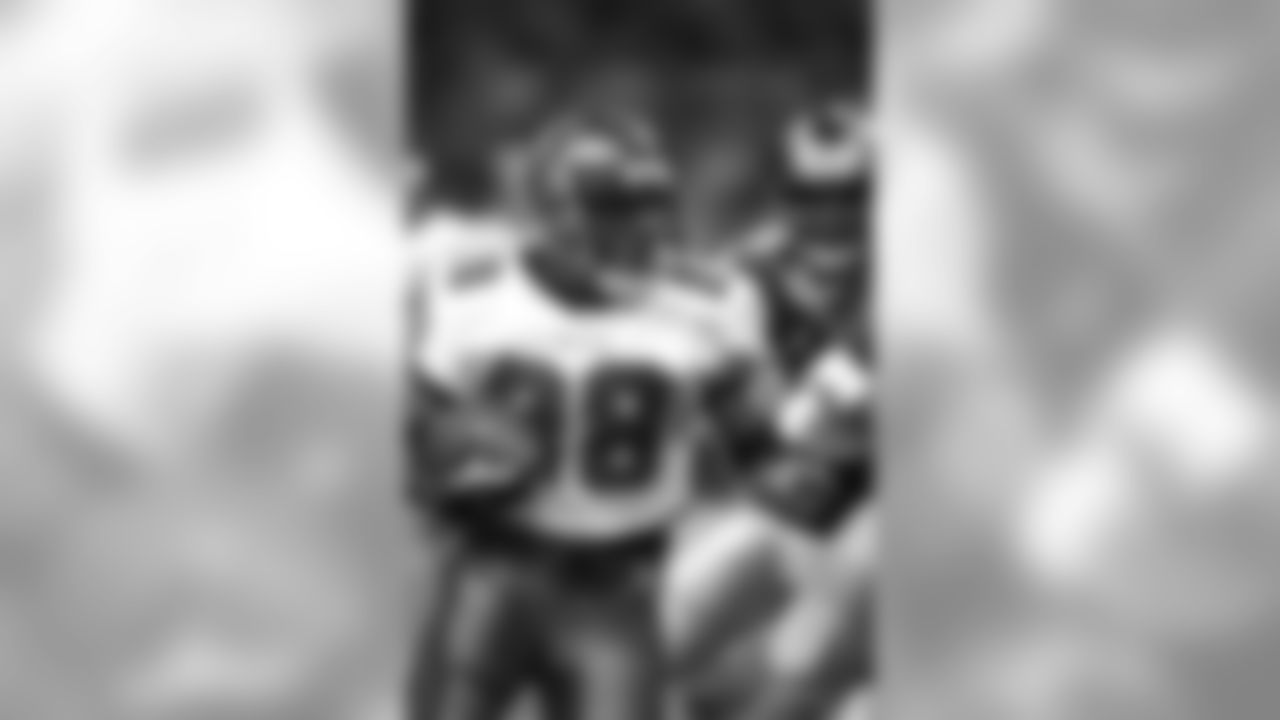
Dunn will have a borderline Hall of Fame argument given that his combined Bucs and Falcons rushing yardage total ranks 21st in league history and he was also a great pass-catcher.
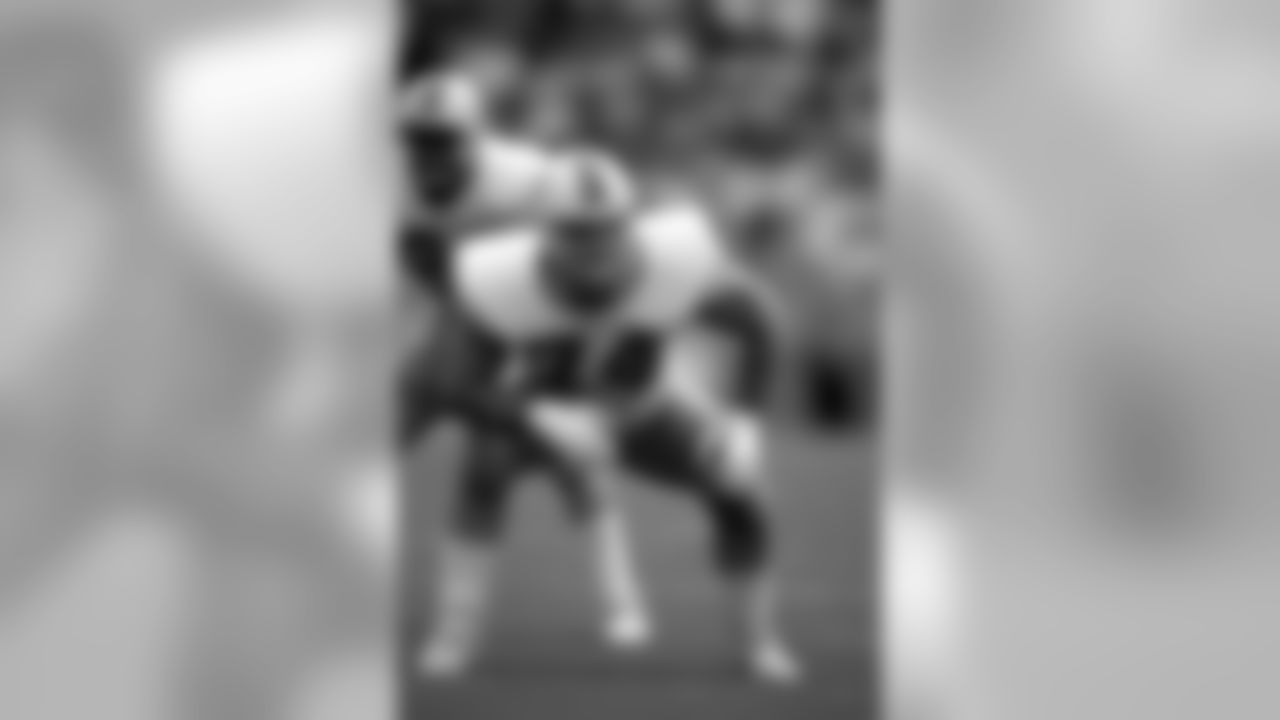
The best offensive lineman in team history and, in that era, a rare perfect use of a high pick. He started from day one until the end of his career at the critical left tackle position. Add in that two other tackles went in the top 12 and neither fared as well as Gruber, and the Bucs really nailed this one in '88.
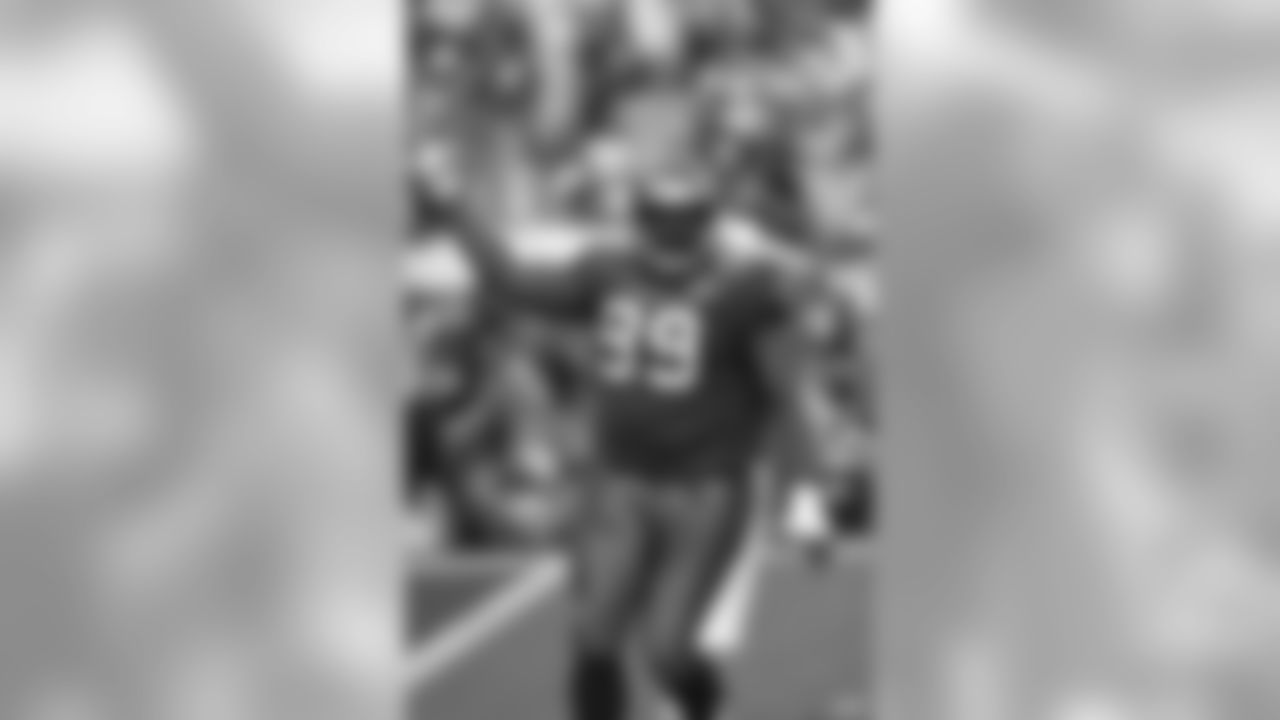
Hall of Famer, franchise-changer, and the Bucs maneuvered around a bit at the beginning of that draft, which gave them more ammunition to make deals like the one that netted Brooks.
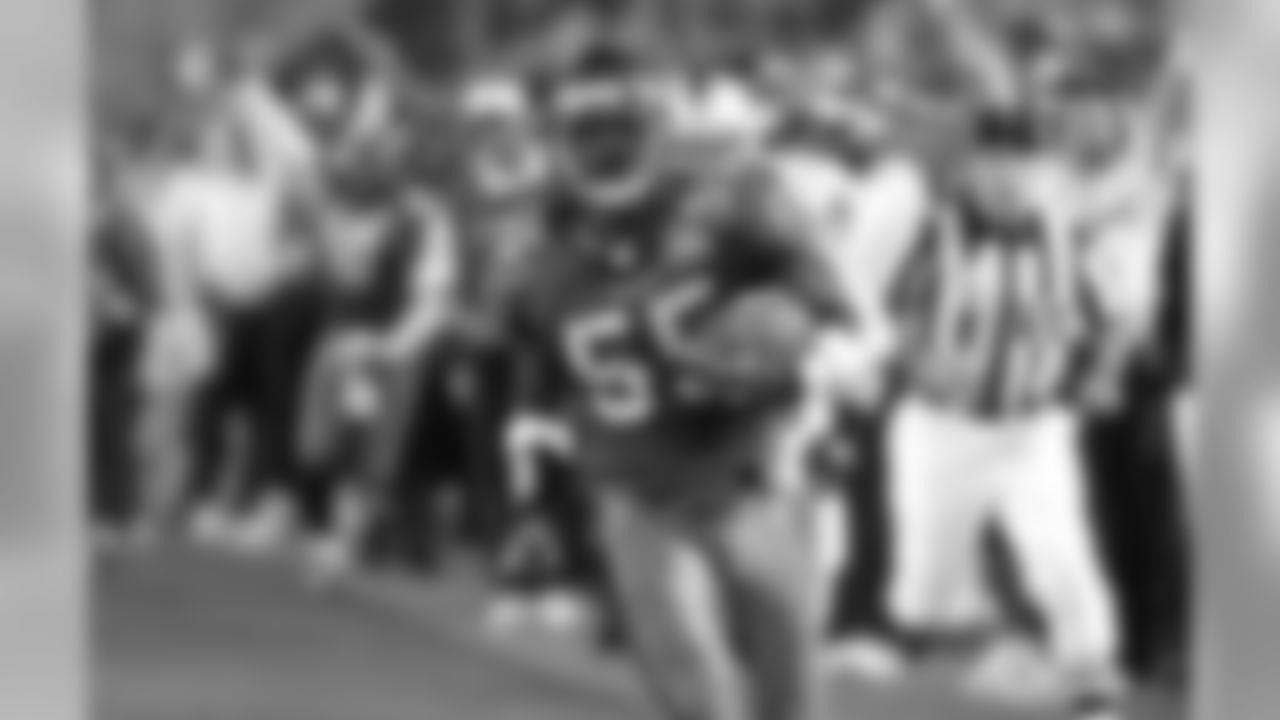
Seriously, you could swap this pick and the last one and not bother me, but I put Brooks first because he was a lower draft pick and thus slightly better value. And the Bucs traded up to get him.
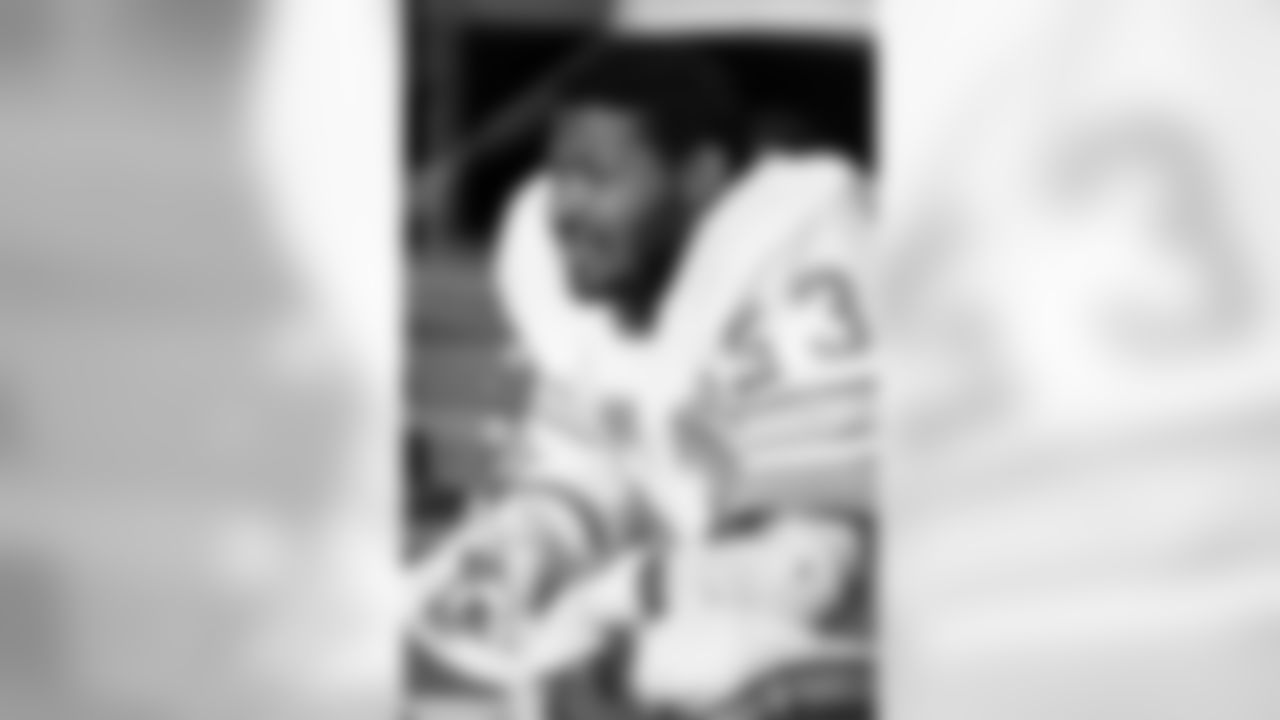
To hit so magnificently on the first college draft pick in franchise history is incredible, and deserving of the top spot.
Each week during the offseason, Senior Writer/Editor Scott Smith will dip into the inbox to answer questions from Buccaneer fans. This week, we get started with a look at how likely the Buccaneers are to turn things around quickly in 2015 and potentially make a playoff run, thanks to Twitter questions from two different fans. We also spend some time rehashing our recent ranking of the team's 35 prior first-round picks and compare free agency quarterbacks to the draft.
*1. Playoffs in 2015?
@TBBuccaneers @ScottSBucs do you think the bucs will be playoff team this year — Fidel Garcia (@fidelgarcia132) March 4, 2015
I know what you expect me to say, and if I did say the 2015 Bucs looked like playoff contenders it would be dismissed as homerism. The honest truth, however, is that – at the moment – there are just too many variables to say one way or the other.
I mean, we haven't even gone through free agency yet. This team's depth chart looked quite a bit different after last year's shopping spree on the open market. I don't necessarily think the team will be quite that aggressive this year (of course, I was wrong about that last year), but there could still be some key additions in the next couple weeks. Then there's the draft, and we all know that there is a possibility we'll have an addition at the game's most important position. How can we really assess the chances of an NFL team until we know who it's starting quarterback will be?
Okay, so yes, I am optimistic. As Lovie Smith and Jason Licht often point out, accurately, the Bucs' 2-14 record last year obscures the fact that the team was in almost all of those contests until the end and had a chance to win quite a few of them. They did not win those games, of course, and that 2-14 record is a fair assessment. Still, I believe this team is closer to being a contender in 2015 than those win-loss totals would suggest. On defense, the Bucs have All-Pro caliber players at the two most important positions in a Tampa Two – DT Gerald McCoy and LB Lavonte David – and for much of the second half looked like a group with great promise. On offense, we'll be relying on two very big "ifs:" If the offensive line can be significantly improved and if the quarterback (whether that's Mike Glennon or somebody not yet on the roster) performs well, things could fall into place quickly. There's no guarantee of either of those things happening, but I choose to be confident in what Smith and Licht are going to do over the next five months. Answer those two "ifs" in the affirmative, and suddenly I think the rest of the picture looks pretty promising, with the addition of an experienced play-caller (new Offensive Coordinator Dirk Koetter) and a skill-position stable that includes Mike Evans, Vincent Jackson, Louis Murphy, Austin Seferian-Jenkins, Brandon Myers, Doug Martin and Charles Sims.
We can also look at this from a coldly dispassionate point of view. To get to the playoffs in 2015, the Buccaneers would probably need to win 10 games. Excluding division champions who come out on top of a group that struggles across the board – e.g. the Panthers in the NFC South this past year or the Packers in the NFC North in 2013 – it usually takes double-digit wins to get into the dance. Some 9-7 teams sneak in from time to time, as San Diego did this past year.
So, we're looking at an improvement of eight wins for the Bucs in 2015 if they want to feel confident at 10-6, and an improvement of seven wins if they could get in at 9-7. Is that realistic? Well, since the 1970 AFL-NFL merger, there have been 26 teams in 45 years who have made a single-season improvement of at least seven wins. Half of those 26 have improved by eight or more victories. So a seven-win improvement happens about three times every five seasons and an eight-win improvement happens about three times every 10 seasons.
The question is, are those encouraging numbers are not? Probably depends on your perspective. It certainly demonstrates that it can happen, and that it's not a once-in-a-generation kind of occurrence. The Houston Texans made a seven-win improvement last year, going from 2-14 in 2013 to 9-7 in 2014…though that wasn't enough to make the playoffs. The Kansas City Chiefs picked up nine wins from 2012 to 2013, going from 2-14 to 11-5 and making it into the postseason. So that's two teams in the past two years to go from a 2-14 finish – which is what the Bucs did in 2014 – to a winning record.
So, Brian and Fidel, there is definitely hope. But let's see what happens over the next couple months before we start making more concrete predictions.
- Scott,*I read your story ranking the Bucs' first-round picks. Personally I think you should have included times when first-round picks were traded – like, where would the trade of two firsts for Keyshawn Johnson rank? How about the Gruden trade? But whatever, it was still worth the read. Although I didn't agree with all of your choices and you said to email in if we disagreed. I don't see how you can put the muscle hamster ahead of Caddy…who has more yards? I also think you were a little too hard on Michael Clayton and Josh Freeman, because they both had at least one very good season. I also think I would have had Marcus Jones higher and Broderick Thomas lower. Just my two cents. Thanks for letting us weigh in.- Damon L., Clearwater via email to **tbbsocial@buccaneers.nfl.com** I *did* encourage feedback on this, but I didn't really get very much. Can I assume that means there wasn't much disagreement with my original list? Yeah, I probably shouldn't assume that. Anyway, there's plenty to work with in Damon's email. As for the first point, I really was just trying to focus on the actual first-round picks the team has made, but Damon's right in that there would have been a few interesting entries had I included the result of every first-rounder the team ever owned, even if they didn't own it on draft night. In additions to the ones he mentioned, there were several ill-fated trades in the early '80s, beginning with the swap of a 1983 first-rounder for a 1982 second-rounder that resulted in notorious draft bust Booker Reese. The repercussions from that deal were felt for years afterward. *
So let's get to your specific disagreements with my list, Damon. First, you note that I had running backs Doug Martin and Cadillac Williams listed back-to-back, with Martin one spot ahead of his predecessor. I will admit that you're not the only person who thought those two should be reversed, and as you suggest Caddy has the statistical edge. He ranks fourth in team history with 3,677 yards, he scored 20 rushing touchdowns and he had nine 100-yard games. So far, Martin has 2,296 yards (ninth in team history), 14 touchdowns and six 100-yard games.*It was that "so far" that swung me in Doug's favor. When Caddy endured two serious knee injuries, we all hoped for a comeback because he was such a great team player and so easy to root for. He did come back a little bit in 2009, with an 800-yard campaign, but that was about it and there was always a sense that there would have been so much more without the injuries. Martin has also been hampered by injuries in the two seasons since his incredible rookie campaign, but the difference is that he's still on the roster. If he can put together another nice run in the next few years, he could easily pass Caddy. That said, if Martin's comeback does not materialize, Caddy would indeed move past him up my list. I tried to make that clear in the original article but obviously failed. I heard some similar comments to yours about Freeman, Damon. It's a valid point. Freeman had a fantastic 2010 season and a decent 2012, and he's actually second all-time in passing yards and first in passing touchdowns in team history. Ouch. I think you're right. I messed that one up. I was swayed at the time (and still am to a point) by how abruptly and unsatisfactorily his Buc tenure ended, and I still believe it's true that the a first-round quarterback can't be considered a true success if he never becomes a "franchise QB." Still, given that he played only one season less than Vinny Testaverde and had superior numbers in almost every category, Freeman should at least be ahead of him. *
A ranking of all 35 first round draft picks in the history of the Tampa Bay Buccaneers.

Of course, we all know what an incredible athlete Jackson was and he ended up with a thrilling if far-too-brief career with the Raiders. But when a team uses the first-overall pick on a man who never plays a single down for that franchise, that is truly the ultimate draft disaster.

You can quibble with the order of these first three picks if you like, but all were top-seven picks who did little to justify that distinction.

A nice man who may not have had the mean streak to excel in the NFL. Whether or not that's true, McRae was picked at #7 overall to be the bookend to Gruber and never came close to the same level of play. The Bucs tried him at several different spots on the line, inside and outside, but he would make just 38 starts.

After the inspired Paul Gruber pick and the okay Broderick Thomas selection, things turned ugly for the franchise over the next half-decade of drafts. It started in '89 with the selection of Alabama's McCants, the linebacker that went one spot ahead of Junior Seau. (I know, I said I wasn't going to go there, but still.) The Bucs liked his raw talents but he was the ultimate 'tweener, unable to make an impact at either linebacker or defensive end.

Another top-10 pick the Bucs traded away during his third season. The far greater tragedy was his sudden death from a heart ailment in January of 2010, after he had finished that third season in Chicago.

"Toast" is really not a nickname you want as an NFL cornerback.

After the 2010 season, Freeman's second, he appeared to be destined for a top-10 spot on this list. However, his 2011 campaign was a step back, and after a decent rebound in 2012 his career became derailed in 2013. The Bucs let him go four games into that season and he was not in the league in 2014.

Barron could still prove to be an above-average NFL player. But it won't be in Tampa. A first-round pick that is traded two-and-a-half years later cannot be considered a successful selection for the team.

An average to below-average guard and four seasons of play are not what a team is looking for at pick #22.

This is probably not fair to Clayborn, the team's first-round pick in 2011. Two of his last three seasons have been wiped out almost completely by knee injuries, making it impossible for him to deliver on the promise of a 7.5-sack rookie campaign. There is still hope for the hard-working Clayborn, but he's a pending free agent and if his career does continue on somewhere else, it will be hard for him to move up this particular list.

Anthony's relatively low career totals (144 catches for 1,846 yards and 16 TDs) may have been due in part to the Bucs' defense-plus-running game formula and conservative play-calling of the time. Still, he was a receiver drafted 16th overall, so it's likely the Bucs were expecting more. Played only five seasons and totaled 58 catches over the last three.

Tony Dungy sought help for the defensive front in his first draft as the Buccaneers' head coach, but he didn't get much overall impact out of the duo of Jones and Upshaw. While Jones had the peak years as a Buc that Upshaw never did, Upshaw had the upper hand in career longevity, continuing on for five more seasons with Oakland, Washington and the Giants.

Rotating QBs during his tenure surely didn't help, but we're just basing this on the numbers that were returned for the high pick.

Jones would have been an unequivocal bust if he had stayed at defensive tackle. But, after several poor seasons inside, he moved to end and racked up 20 sacks from 1999-2000. That earned him a big new contract that proved to be a mistake, as he would play in just 15 more games and produced three more sacks.

As the story goes, a problematic phone line in 1982 led to the Bucs' mistakenly taking Farrell in the first round, which then led to the disastrous trade of an '83 first-round pick to get a second-rounder in order to nab the intended target, Booker Reese. Farrell was actually a pretty effective guard for the Buccaneers, but he wasn't happy with the losing culture of that time and eventually demanded a trade. The low ranking of this pick is more of a reflection of how the whole thing was handled by the organization than of Farrell's talents.

The Bucs traded up to land Walker in 2001, but he had a rough season at left tackle as a rookie. He moved to right tackle in 2002 and ended up as a starter on a Super Bowl-winning team. That and 73 career starts keeps him from getting the bust label, but his level of play rarely lived up to the expectations of a 14th-overall selection.

Holmes was a decent end who started for most of his four seasons in Tampa and produced 19 sacks in that span.

Listen, the story for these two (Dilfer and Testavarde) is the same. They both are very nice men who ended up with perfectly decent NFL careers. Dilfer, in fact, started for a Super Bowl-winning team in Baltimore while Testaverde played long enough and consistently enough to climb to ninth on the NFL's all-time passing-yardage chart. But both threw more interceptions than touchdowns as a Buccaneer and both left town with a passer rating south of 70. Really, the point is that they were #6 and #1 overall picks, respectively, and if you take a QB there and don't end up with a franchise QB, the pick isn't a total success. Trent gets the nod over Vinny because he made a Pro Bowl and the playoffs as a Buccaneer.

Listen, the story for these two (Dilfer and Testavarde) is the same. They both are very nice men who ended up with perfectly decent NFL careers. Dilfer, in fact, started for a Super Bowl-winning team in Baltimore while Testaverde played long enough and consistently enough to climb to ninth on the NFL's all-time passing-yardage chart. But both threw more interceptions than touchdowns as a Buccaneer and both left town with a passer rating south of 70. Really, the point is that they were #6 and #1 overall picks, respectively, and if you take a QB there and don't end up with a franchise QB, the pick isn't a total success. Trent gets the nod over Vinny because he made a Pro Bowl and the playoffs as a Buccaneer.

Williams was a good running back and a great teammate who deserved better luck. Knee injuries kept him from ever matching his rookie campaign, though he did have a pretty good comeback season in 2009. Williams would probably be bumped up ahead of the next guy in the long run if he doesn't have a similar rebound.

You could lump this pick and the last one together, but Martin goes ahead of Williams because he still has time to add on to what he has done. Like Williams, Martin had an outstanding rookie season but has since struggled with injuries and not come close to matching that production. Hopefully, he gets a chance to move up this list.

McFarland was a good defensive tackle who played eight seasons in Tampa and started 84 games. There were weighty expectations on him when he was drafted, especially the notion that he was the team's eventual replacement for Warren Sapp, and he didn't live up to those expectations, but he wasn't a bust.

Thomas tends to get lumped in with all the team's disastrous picks around the turn of the 90s, but he really wasn't a bust. He played five seasons for the Bucs, started 55 games and is eighth on the franchise's all-time sack list. His peak was too brief and he clashed with coaches, but he wasn't another Eric Curry or Keith McCants.

Another Buccaneer tenure that ended in an unsatisfactory manner. Off-field issues kept him from being a Buccaneer long-term, but he gave the team five undeniably productive seasons and is still considered among the league's best at his position.

We really can't go any higher than this after just one season. Still, the future looks very, very bright for this pick.

His career was cut short by the illness that took his life way too soon, but he really was the workhorse back the Bucs needed when they were rising from the cellar in the '70s. Again, we're not taking into account that the Bucs took Bell over Tony Dorsett.

The pick nobody saw coming in 2006, one that was considered a "reach" at the time since Joseph hadn't shown up in any of the mock drafts. But he was the Bucs' target all along and he eventually went to multiple Pro Bowls

Green really was a standout player, fantastic in college and an immediate impact defender in the pros. It's too bad more than half of his career was spent with the Dolphins.

The first quarterback ever taken by the Bucs in the first round (that is, the first attempt to find a "franchise QB") and the man at the helm of the offense for the team's first three playoff berths. Later won a Super Bowl with Washington.

Could rise quickly up this list if he continues to pile up Pro Bowl invites and All-Pro selections.

Dunn will have a borderline Hall of Fame argument given that his combined Bucs and Falcons rushing yardage total ranks 21st in league history and he was also a great pass-catcher.

The best offensive lineman in team history and, in that era, a rare perfect use of a high pick. He started from day one until the end of his career at the critical left tackle position. Add in that two other tackles went in the top 12 and neither fared as well as Gruber, and the Bucs really nailed this one in '88.

Hall of Famer, franchise-changer, and the Bucs maneuvered around a bit at the beginning of that draft, which gave them more ammunition to make deals like the one that netted Brooks.

Seriously, you could swap this pick and the last one and not bother me, but I put Brooks first because he was a lower draft pick and thus slightly better value. And the Bucs traded up to get him.

To hit so magnificently on the first college draft pick in franchise history is incredible, and deserving of the top spot.
I probably would stay put on Clayton, though, even though it's a similar point. What I need to emphasize is that my goal was to assess how good the overall value was that the Buccaneers received from each first-round pick. I occasionally pointed out some reasons why a certain pick didn't return enough value – in Clayton's case, for instance, he really did have to play with a ton of different quarterbacks – because this wasn't supposed to be an exercise in speaking harshly about any former Buccaneers. Clayton's talents were obvious in his amazing 80-catch rookie season, one of the best ever by a first-year NFL wideout, but his production dipped after that and never returned. Again, there were probably plenty of reasons for this that which take nothing away from his skills as a football player, but we're just judging whether or not the Bucs got what they anticipated in the long-term from a first-round pick. In this case, I feel good about where this pick is ranked.*I actually did start out with Jones higher on the list but as I went along I kept bumping him down a little bit here and there. When it comes down to it, he really only had one standout season, and the fact that he lasted a very short time after signing a large new contract hurts his cause. As for Thomas, he's another interesting case because, as the team's pick in 1989, I think he is sometimes lumped in with the McCants-McRae-Curry run from 1990-93. At one point Thomas looked like a star in the making, and while that didn't really come to pass, he wasn't a bust overall. His 26.5 sacks rank eighth in team history. So those are my thoughts in regards to your thoughts, Damon. We have lots of thoughts! In the end, this whole thing is subjective and this kind of debate is the reason to make such a list in the first place. 3. Free Agent QB?*
Let's be extremely clear: These are just my thoughts. Don't interpret my answer as any indication of what is going on behind closed doors in the Bucs' draft room. Also, you specifically gave me just one quarterback in this year's draft to consider, so this can't be construed as a vote for Winston over any of the others. Clear? Okay, well then…
I would take Winston.
It's still a couple days until I can feel comfortable discussing the unrestricted free agents in specific detail, but it's fair to say that this year's crop of potentially-available quarterbacks is underwhelming at best. Here's the top five list at that position as determined by NFL.com; are you thrilled by any of those options, especially in the long run? It's interesting that you don't mention Mike Glennon, who is on the Bucs' roster already, in your scenario. Were you thinking of a free agent addition as a veteran backup to him? I suppose that's possible no matter what the Bucs do in the draft.
You say, "take a risk" on Winston. Can we all agree that there is risk of any draft pick failing to work out? That's pretty well-established at this point. We're just eight years removed from the #1 overall pick being spent on JaMarcus Russell, who completely failed to deliver on that lofty draft status in Oakland. We may yet see great things from Sam Bradford, Eric Fisher and Jadeveon Clowney – the #1 overall picks in 2010, 2013 and 2014, respectively – but no matter how optimistic you are about those three there is still a chance any or all of them could end up as a draft "miss."
WINSTON Links
Articles
Winston's combine report
5 Takeaways: Winston's PC
Mock Draft, 4.0
Verner on No. 1 pick
Winston's Pro Day date
Photos
Videos
Whether the Buccaneers take Jameis Winston, Marcus Mariota, Leonard Williams or any of the other possible options at #1, I'm confident they will only do so once they have determined that the risk level of that pick is acceptable. What I'm saying is that, beyond the inherent risk of any pick, I don't think the Bucs will be calling a name on the first night of the draft with the belief that the player really is a significant risk.
Will that be Winston? I don't know. You and I are not privy to the full scouting report that is being constructed by Licht and company. But you asked me what I would do. If I was convinced that there was no issue that was going to make the pick blow up in my face, my decision would be to roll the draft dice on a potential franchise quarterback. The Buccaneers have been searching for just that for what, 40 years? They may be in a position to grab one now, and those opportunities don't come along very often.
Fans can submit questions for upcoming mailbags via Twitter to @ScottSBucs (#BucsMailbag), through a message on the Buccaneers Official Facebook Page or via email at **tbbsocial@buccaneers.nfl.com*. The One Buc Mailbag runs every Thursday and is not necessarily meant to reflect the opinions of the team's management or coaching staff.*






